
- Online Course

40 Best Essays of All Time (Including Links & Writing Tips)
I wanted to improve my writing skills. I thought that reading the forty best essays of all time would bring me closer to my goal.
I had little money (buying forty collections of essays was out of the question) so I’ve found them online instead. I’ve hacked through piles of them, and finally, I’ve found the great ones. Now I want to share the whole list with you (with the addition of my notes about writing). Each item on the list has a direct link to the essay, so please click away and indulge yourself. Also, next to each essay, there’s an image of the book that contains the original work.
About this essay list:
Reading essays is like indulging in candy; once you start, it’s hard to stop. I sought out essays that were not only well-crafted but also impactful. These pieces genuinely shifted my perspective. Whether you’re diving in for enjoyment or to hone your writing, these essays promise to leave an imprint. It’s fascinating how an essay can resonate with you, and even if details fade, its essence remains. I haven’t ranked them in any way; they’re all stellar. Skim through, explore the summaries, and pick up some writing tips along the way. For more essay gems, consider “Best American Essays” by Joyce Carol Oates or “101 Essays That Will Change The Way You Think” curated by Brianna Wiest.

40 Best Essays of All Time (With Links And Writing Tips)
1. david sedaris – laugh, kookaburra.

A great family drama takes place against the backdrop of the Australian wilderness. And the Kookaburra laughs… This is one of the top essays of the lot. It’s a great mixture of family reminiscences, travel writing, and advice on what’s most important in life. You’ll also learn an awful lot about the curious culture of the Aussies.
Writing tips from the essay:
- Use analogies (you can make it funny or dramatic to achieve a better effect): “Don’t be afraid,” the waiter said, and he talked to the kookaburra in a soothing, respectful voice, the way you might to a child with a switchblade in his hand”.
- You can touch a few cognate stories in one piece of writing . Reveal the layers gradually. Intertwine them and arrange for a grand finale where everything is finally clear.
- Be on the side of the reader. Become their friend and tell the story naturally, like around the dinner table.
- Use short, punchy sentences. Tell only as much as is required to make your point vivid.
- Conjure sentences that create actual feelings: “I had on a sweater and a jacket, but they weren’t quite enough, and I shivered as we walked toward the body, and saw that it was a . . . what, exactly?”
- You may ask a few tough questions in a row to provoke interest and let the reader think.
2. Charles D’Ambrosio – Documents

Do you think your life punches you in the face all too often? After reading this essay, you will change your mind. Reading about loss and hardships often makes us sad at first, but then enables us to feel grateful for our lives . D’Ambrosio shares his documents (poems, letters) that had a major impact on his life, and brilliantly shows how not to let go of the past.
- The most powerful stories are about your family and the childhood moments that shaped your life.
- You don’t need to build up tension and pussyfoot around the crux of the matter. Instead, surprise the reader by telling it like it is: “The poem was an allegory about his desire to leave our family.” Or: “My father had three sons. I’m the eldest; Danny, the youngest, killed himself sixteen years ago”.
- You can use real documents and quotes from your family and friends. It makes it so much more personal and relatable.
- Don’t cringe before the long sentence if you know it’s a strong one.
- At the end of the essay, you may come back to the first theme to close the circuit.
- Using slightly poetic language is acceptable, as long as it improves the story.
3. E. B. White – Once more to the lake

What does it mean to be a father? Can you see your younger self, reflected in your child? This beautiful essay tells the story of the author, his son, and their traditional stay at a placid lake hidden within the forests of Maine. This place of nature is filled with sunshine and childhood memories. It also provides for one of the greatest meditations on nature and the passing of time.
- Use sophisticated language, but not at the expense of readability.
- Use vivid language to trigger the mirror neurons in the reader’s brain: “I took along my son, who had never had any fresh water up his nose and who had seen lily pads only from train windows”.
- It’s important to mention universal feelings that are rarely talked about (it helps to create a bond between two minds): “You remember one thing, and that suddenly reminds you of another thing. I guess I remembered clearest of all the early mornings when the lake was cool and motionless”.
- Animate the inanimate: “this constant and trustworthy body of water”.
- Mentioning tales of yore is a good way to add some mystery and timelessness to your piece.
- Using double, or even triple “and” in one sentence is fine. It can make the sentence sing.
4. Zadie Smith – Fail Better

Aspiring writers feel tremendous pressure to perform. The daily quota of words often turns out to be nothing more than gibberish. What then? Also, should the writer please the reader or should she be fully independent? What does it mean to be a writer, anyway? This essay is an attempt to answer these questions, but its contents are not only meant for scribblers. Within it, you’ll find some great notes about literary criticism, how we treat art , and the responsibility of the reader.
- A perfect novel ? There’s no such thing.
- The novel always reflects the inner world of the writer. That’s why we’re fascinated with writers.
- Writing is not simply about craftsmanship, but about taking your reader to the unknown lands. In the words of Christopher Hitchens: “Your ideal authors ought to pull you from the foundering of your previous existence, not smilingly guide you into a friendly and peaceable harbor.”
- Style comes from your unique personality and the perception of the world. It takes time to develop it.
- Never try to tell it all. “All” can never be put into language. Take a part of it and tell it the best you can.
- Avoid being cliché. Try to infuse new life into your writing .
- Writing is about your way of being. It’s your game. Paradoxically, if you try to please everyone, your writing will become less appealing. You’ll lose the interest of the readers. This rule doesn’t apply in the business world where you have to write for a specific person (a target audience).
- As a reader, you have responsibilities too. According to the critics, every thirty years, there’s just a handful of great novels. Maybe it’s true. But there’s also an element of personal connection between the reader and the writer. That’s why for one person a novel is a marvel, while for the other, nothing special at all. That’s why you have to search and find the author who will touch you.
5. Virginia Woolf – Death of the Moth

Amid an ordinary day, sitting in a room of her own, Virginia Woolf tells about the epic struggle for survival and the evanescence of life. This short essay is truly powerful. In the beginning, the atmosphere is happy. Life is in full force. And then, suddenly, it fades away. This sense of melancholy would mark the last years of Woolf’s life.
- The melody of language… A good sentence is like music: “Moths that fly by day are not properly to be called moths; they do not excite that pleasant sense of dark autumn nights and ivy-blossom which the commonest yellow- underwing asleep in the shadow of the curtain never fails to rouse in us”.
- You can show the grandest in the mundane (for example, the moth at your window and the drama of life and death).
- Using simple comparisons makes the style more lucid: “Being intent on other matters I watched these futile attempts for a time without thinking, unconsciously waiting for him to resume his flight, as one waits for a machine, that has stopped momentarily, to start again without considering the reason of its failure”.
6. Meghan Daum – My Misspent Youth

Many of us, at some point or another, dream about living in New York. Meghan Daum’s take on the subject differs slightly from what you might expect. There’s no glamour, no Broadway shows, and no fancy restaurants. Instead, there’s the sullen reality of living in one of the most expensive cities in the world. You’ll get all the juicy details about credit cards, overdue payments, and scrambling for survival. It’s a word of warning. But it’s also a great story about shattered fantasies of living in a big city. Word on the street is: “You ain’t promised mañana in the rotten manzana.”
- You can paint a picture of your former self. What did that person believe in? What kind of world did he or she live in?
- “The day that turned your life around” is a good theme you may use in a story. Memories of a special day are filled with emotions. Strong emotions often breed strong writing.
- Use cultural references and relevant slang to create a context for your story.
- You can tell all the details of the story, even if in some people’s eyes you’ll look like the dumbest motherfucker that ever lived. It adds to the originality.
- Say it in a new way: “In this mindset, the dollars spent, like the mechanics of a machine no one bothers to understand, become an abstraction, an intangible avenue toward self-expression, a mere vehicle of style”.
- You can mix your personal story with the zeitgeist or the ethos of the time.
7. Roger Ebert – Go Gentle Into That Good Night

Probably the greatest film critic of all time, Roger Ebert, tells us not to rage against the dying of the light. This essay is full of courage, erudition, and humanism. From it, we learn about what it means to be dying (Hitchens’ “Mortality” is another great work on that theme). But there’s so much more. It’s a great celebration of life too. It’s about not giving up, and sticking to your principles until the very end. It brings to mind the famous scene from Dead Poets Society where John Keating (Robin Williams) tells his students: “Carpe, carpe diem, seize the day boys, make your lives extraordinary”.
- Start with a powerful sentence: “I know it is coming, and I do not fear it, because I believe there is nothing on the other side of death to fear.”
- Use quotes to prove your point -”‘Ask someone how they feel about death’, he said, ‘and they’ll tell you everyone’s gonna die’. Ask them, ‘In the next 30 seconds?’ No, no, no, that’s not gonna happen”.
- Admit the basic truths about reality in a childlike way (especially after pondering quantum physics) – “I believe my wristwatch exists, and even when I am unconscious, it is ticking all the same. You have to start somewhere”.
- Let other thinkers prove your point. Use quotes and ideas from your favorite authors and friends.
8. George Orwell – Shooting an Elephant

Even after one reading, you’ll remember this one for years. The story, set in British Burma, is about shooting an elephant (it’s not for the squeamish). It’s also the most powerful denunciation of colonialism ever put into writing. Orwell, apparently a free representative of British rule, feels to be nothing more than a puppet succumbing to the whim of the mob.
- The first sentence is the most important one: “In Moulmein, in Lower Burma, I was hated by large numbers of people — the only time in my life that I have been important enough for this to happen to me”.
- You can use just the first paragraph to set the stage for the whole piece of prose.
- Use beautiful language that stirs the imagination: “I remember that it was a cloudy, stuffy morning at the beginning of the rains.” Or: “I watched him beating his bunch of grass against his knees, with that preoccupied grandmotherly air that elephants have.”
- If you’ve ever been to war, you will have a story to tell: “(Never tell me, by the way, that the dead look peaceful. Most of the corpses I have seen looked devilish.)”
- Use simple words, and admit the sad truth only you can perceive: “They did not like me, but with the magical rifle in my hands I was momentarily worth watching”.
- Share words of wisdom to add texture to the writing: “I perceived at this moment that when the white man turns tyrant it is his freedom that he destroys.”
- I highly recommend reading everything written by Orwell, especially if you’re looking for the best essay collections on Amazon or Goodreads.
9. George Orwell – A Hanging

It’s just another day in Burma – time to hang a man. Without much ado, Orwell recounts the grim reality of taking another person’s life. A man is taken from his cage and in a few minutes, he’s going to be hanged. The most horrible thing is the normality of it. It’s a powerful story about human nature. Also, there’s an extraordinary incident with the dog, but I won’t get ahead of myself.
- Create brilliant, yet short descriptions of characters: “He was a Hindu, a puny wisp of a man, with a shaven head and vague liquid eyes. He had a thick, sprouting mustache, absurdly too big for his body, rather like the mustache of a comic man on the films”.
- Understand and share the felt presence of a unique experience: “It is curious, but till that moment I had never realized what it means to destroy a healthy, conscious man”.
- Make your readers hear the sound that will stay with them forever: “And then when the noose was fixed, the prisoner began crying out on his god. It was a high, reiterated cry of “Ram! Ram! Ram! Ram!”
- Make the ending original by refusing the tendency to seek closure or summing it up.
10. Christopher Hitchens – Assassins of The Mind

In one of the greatest essays written in defense of free speech, Christopher Hitchens shares many examples of how modern media kneel to the explicit threats of violence posed by Islamic extremists. He recounts the story of his friend, Salman Rushdie, author of Satanic Verses who, for many years, had to watch over his shoulder because of the fatwa of Ayatollah Khomeini. With his usual wit, Hitchens shares various examples of people who died because of their opinions and of editors who refuse to publish anything related to Islam because of fear (and it was written long before the Charlie Hebdo massacre). After reading the essay, you realize that freedom of expression is one of the most precious things we have and that we have to fight for it. I highly recommend all essay collections penned by Hitchens, especially the ones written for Vanity Fair.
- Assume that the readers will know the cultural references. When they do, their self-esteem goes up – they are a part of an insider group.
- When proving your point, give a variety of real-life examples from eclectic sources. Leave no room for ambiguity or vagueness. Research and overall knowledge are essential here.
- Use italics to emphasize a specific word or phrase (here I use the underlining): “We live now in a climate where every publisher and editor and politician has to weigh in advance the possibility of violent Muslim reprisal. In consequence, several things have not happened.”
- Think about how to make it sound more original: “So there is now a hidden partner in our cultural and academic and publishing and the broadcasting world: a shadowy figure that has, uninvited, drawn up a chair to the table.”
11. Christopher Hitchens – The New Commandments

It’s high time to shatter the tablets and amend the biblical rules of conduct. Watch, as Christopher Hitchens slays one commandment after the other on moral, as well as historical grounds. For example, did you know that there are many versions of the divine law dictated by God to Moses which you can find in the Bible? Aren’t we thus empowered to write our version of a proper moral code? If you approach it with an open mind, this essay may change the way you think about the Bible and religion.
- Take the iconoclastic approach. Have a party on the hallowed soil.
- Use humor to undermine orthodox ideas (it seems to be the best way to deal with an established authority).
- Use sarcasm and irony when appropriate (or not): “Nobody is opposed to a day of rest. The international Communist movement got its start by proclaiming a strike for an eight-hour day on May 1, 1886, against Christian employers who used child labor seven days a week”.
- Defeat God on legal grounds: “Wise lawmakers know that it is a mistake to promulgate legislation that is impossible to obey”.
- Be ruthless in the logic of your argument. Provide evidence.
12. Phillip Lopate – Against Joie de Vivre

While reading this fantastic essay, this quote from Slavoj Žižek kept coming back to me: “I think that the only life of deep satisfaction is a life of eternal struggle, especially struggle with oneself. If you want to remain happy, just remain stupid. Authentic masters are never happy; happiness is a category of slaves”. I can bear the onus of happiness or joie de vivre for some time. But this force enables me to get free and wallow in the sweet feelings of melancholy and nostalgia. By reading this work of Lopate, you’ll enter into the world of an intelligent man who finds most social rituals a drag. It’s worth exploring.
- Go against the grain. Be flamboyant and controversial (if you can handle it).
- Treat the paragraph like a group of thoughts on one theme. Next paragraph, next theme.
- Use references to other artists to set the context and enrich the prose: “These sunny little canvases with their talented innocence, the third-generation spirit of Montmartre, bore testimony to a love of life so unbending as to leave an impression of rigid narrow-mindedness as extreme as any Savonarola. Their rejection of sorrow was total”.
- Capture the emotions in life that are universal, yet remain unspoken.
- Don’t be afraid to share your intimate experiences.
13. Philip Larkin – The Pleasure Principle

This piece comes from the Required Writing collection of personal essays. Larkin argues that reading in verse should be a source of intimate pleasure – not a medley of unintelligible thoughts that only the author can (or can’t?) decipher. It’s a sobering take on modern poetry and a great call to action for all those involved in it. Well worth a read.
- Write about complicated ideas (such as poetry) simply. You can change how people look at things if you express yourself enough.
- Go boldly. The reader wants a bold writer: “We seem to be producing a new kind of bad poetry, not the old kind that tries to move the reader and fails, but one that does not even try”.
- Play with words and sentence length. Create music: “It is time some of you playboys realized, says the judge, that reading a poem is hard work. Fourteen days in stir. Next case”.
- Persuade the reader to take action. Here, direct language is the most effective.
14. Sigmund Freud – Thoughts for the Times on War and Death

This essay reveals Freud’s disillusionment with the whole project of Western civilization. How the peaceful European countries could engage in a war that would eventually cost over 17 million lives? What stirs people to kill each other? Is it their nature, or are they puppets of imperial forces with agendas of their own? From the perspective of time, this work by Freud doesn’t seem to be fully accurate. Even so, it’s well worth your time.
- Commence with long words derived from Latin. Get grandiloquent, make your argument incontrovertible, and leave your audience discombobulated.
- Use unending sentences, so that the reader feels confused, yet impressed.
- Say it well: “In this way, he enjoyed the blue sea and the grey; the beauty of snow-covered mountains and green meadowlands; the magic of northern forests and the splendor of southern vegetation; the mood evoked by landscapes that recall great historical events, and the silence of untouched nature”.
- Human nature is a subject that never gets dry.
15. Zadie Smith – Some Notes on Attunement
“You are privy to a great becoming, but you recognize nothing” – Francis Dolarhyde. This one is about the elusiveness of change occurring within you. For Zadie, it was hard to attune to the vibes of Joni Mitchell – especially her Blue album. But eventually, she grew up to appreciate her genius, and all the other things changed as well. This top essay is all about the relationship between humans, and art. We shouldn’t like art because we’re supposed to. We should like it because it has an instantaneous, emotional effect on us. Although, according to Stansfield (Gary Oldman) in Léon, liking Beethoven is rather mandatory.
- Build an expectation of what’s coming: “The first time I heard her I didn’t hear her at all”.
- Don’t be afraid of repetition if it feels good.
- Psychedelic drugs let you appreciate things you never appreciated.
- Intertwine a personal journey with philosophical musings.
- Show rather than tell: “My friends pitied their eyes. The same look the faithful give you as you hand them back their “literature” and close the door in their faces”.
- Let the poets speak for you: “That time is past, / And all its aching joys are now no
- more, / And all its dizzy raptures”.
- By voicing your anxieties, you can heal the anxieties of the reader. In that way, you say: “I’m just like you. I’m your friend in this struggle”.
- Admit your flaws to make your persona more relatable.
16. Annie Dillard – Total Eclipse

My imagination was always stirred by the scene of the solar eclipse in Pharaoh, by Boleslaw Prus. I wondered about the shock of the disoriented crowd when they saw how their ruler could switch off the light. Getting immersed in this essay by Annie Dillard has a similar effect. It produces amazement and some kind of primeval fear. It’s not only the environment that changes; it’s your mind and the perception of the world. After the eclipse, nothing is going to be the same again.
- Yet again, the power of the first sentence draws you in: “It had been like dying, that sliding down the mountain pass”.
- Don’t miss the extraordinary scene. Then describe it: “Up in the sky, like a crater from some distant cataclysm, was a hollow ring”.
- Use colloquial language. Write as you talk. Short sentences often win.
- Contrast the numinous with the mundane to enthrall the reader.
17. Édouard Levé – When I Look at a Strawberry, I Think of a Tongue

This suicidally beautiful essay will teach you a lot about the appreciation of life and the struggle with mental illness. It’s a collection of personal, apparently unrelated thoughts that show us the rich interior of the author. You look at the real-time thoughts of another person, and then recognize the same patterns within yourself… It sounds like a confession of a person who’s about to take their life, and it’s striking in its originality.
- Use the stream-of-consciousness technique and put random thoughts on paper. Then, polish them: “I have attempted suicide once, I’ve been tempted four times to attempt it”.
- Place the treasure deep within the story: “When I look at a strawberry, I think of a tongue, when I lick one, of a kiss”.
- Don’t worry about what people might think. The more you expose, the more powerful the writing. Readers also take part in the great drama. They experience universal emotions that mostly stay inside. You can translate them into writing.
18. Gloria E. Anzaldúa – How to Tame a Wild Tongue

Anzaldúa, who was born in south Texas, had to struggle to find her true identity. She was American, but her culture was grounded in Mexico. In this way, she and her people were not fully respected in either of the countries. This essay is an account of her journey of becoming the ambassador of the Chicano (Mexican-American) culture. It’s full of anecdotes, interesting references, and different shades of Spanish. It’s a window into a new cultural dimension that you’ve never experienced before.
- If your mother tongue is not English, but you write in English, use some of your unique homeland vocabulary.
- You come from a rich cultural heritage. You can share it with people who never heard about it, and are not even looking for it, but it is of immense value to them when they discover it.
- Never forget about your identity. It is precious. It is a part of who you are. Even if you migrate, try to preserve it. Use it to your best advantage and become the voice of other people in the same situation.
- Tell them what’s really on your mind: “So if you want to hurt me, talk badly about my language. Ethnic identity is twin skin to linguistic identity – I am my language”.
19. Kurt Vonnegut – Dispatch From A Man Without a Country

In terms of style, this essay is flawless. It’s simple, conversational, humorous, and yet, full of wisdom. And when Vonnegut becomes a teacher and draws an axis of “beginning – end”, and, “good fortune – bad fortune” to explain literature, it becomes outright hilarious. It’s hard to find an author with such a down-to-earth approach. He doesn’t need to get intellectual to prove a point. And the point could be summed up by the quote from Great Expectations – “On the Rampage, Pip, and off the Rampage, Pip – such is Life!”
- Start with a curious question: “Do you know what a twerp is?”
- Surprise your readers with uncanny analogies: “I am from a family of artists. Here I am, making a living in the arts. It has not been a rebellion. It’s as though I had taken over the family Esso station.”
- Use your natural language without too many special effects. In time, the style will crystalize.
- An amusing lesson in writing from Mr. Vonnegut: “Here is a lesson in creative writing. First rule: Do not use semicolons. They are transvestite hermaphrodites representing absolutely nothing. All they do is show you’ve been to college”.
- You can put actual images or vignettes between the paragraphs to illustrate something.
20. Mary Ruefle – On Fear

Most psychologists and gurus agree that fear is the greatest enemy of success or any creative activity. It’s programmed into our minds to keep us away from imaginary harm. Mary Ruefle takes on this basic human emotion with flair. She explores fear from so many angles (especially in the world of poetry-writing) that at the end of this personal essay, you will look at it, dissect it, untangle it, and hopefully be able to say “f**k you” the next time your brain is trying to stop you.
- Research your subject thoroughly. Ask people, have interviews, get expert opinions, and gather as much information as possible. Then scavenge through the fields of data, and pull out the golden bits that will let your prose shine.
- Use powerful quotes to add color to your story: “The poet who embarks on the creation of the poem (as I know by experience), begins with the aimless sensation of a hunter about to embark on a night hunt through the remotest of forests. Unaccountable dread stirs in his heart”. – Lorca.
- Writing advice from the essay: “One of the fears a young writer has is not being able to write as well as he or she wants to, the fear of not being able to sound like X or Y, a favorite author. But out of fear, hopefully, is born a young writer’s voice”.
21. Susan Sontag – Against Interpretation

In this highly intellectual essay, Sontag fights for art and its interpretation. It’s a great lesson, especially for critics and interpreters who endlessly chew on works that simply defy interpretation. Why don’t we just leave the art alone? I always hated it when at school they asked me: “What did the author have in mind when he did X or Y?” Iēsous Pantocrator! Hell if I know! I will judge it through my subjective experience!
- Leave the art alone: “Today is such a time, when the project of interpretation is reactionary, stifling. Like the fumes of the automobile and heavy industry which befoul the urban atmosphere, the effusion of interpretations of art today poisons our sensibilities”.
- When you have something really important to say, style matters less.
- There’s no use in creating a second meaning or inviting interpretation of our art. Just leave it be and let it speak for itself.
22. Nora Ephron – A Few Words About Breasts

This is a heartwarming, coming-of-age story about a young girl who waits in vain for her breasts to grow. It’s simply a humorous and pleasurable read. The size of breasts is a big deal for women. If you’re a man, you may peek into the mind of a woman and learn many interesting things. If you’re a woman, maybe you’ll be able to relate and at last, be at peace with your bosom.
- Touch an interesting subject and establish a strong connection with the readers (in that case, women with small breasts). Let your personality shine through the written piece. If you are lighthearted, show it.
- Use hyphens to create an impression of real talk: “My house was full of apples and peaches and milk and homemade chocolate chip cookies – which were nice, and good for you, but-not-right-before-dinner-or-you’ll-spoil-your-appetite.”
- Use present tense when you tell a story to add more life to it.
- Share the pronounced, memorable traits of characters: “A previous girlfriend named Solange, who was famous throughout Beverly Hills High School for having no pigment in her right eyebrow, had knitted them for him (angora dice)”.
23. Carl Sagan – Does Truth Matter – Science, Pseudoscience, and Civilization

Carl Sagan was one of the greatest proponents of skepticism, and an author of numerous books, including one of my all-time favorites – The Demon-Haunted World . He was also a renowned physicist and the host of the fantastic Cosmos: A Personal Voyage series, which inspired a whole generation to uncover the mysteries of the cosmos. He was also a dedicated weed smoker – clearly ahead of his time. The essay that you’re about to read is a crystallization of his views about true science, and why you should check the evidence before believing in UFOs or similar sorts of crap.
- Tell people the brutal truth they need to hear. Be the one who spells it out for them.
- Give a multitude of examples to prove your point. Giving hard facts helps to establish trust with the readers and show the veracity of your arguments.
- Recommend a good book that will change your reader’s minds – How We Know What Isn’t So: The Fallibility of Human Reason in Everyday Life
24. Paul Graham – How To Do What You Love

How To Do What You Love should be read by every college student and young adult. The Internet is flooded with a large number of articles and videos that are supposed to tell you what to do with your life. Most of them are worthless, but this one is different. It’s sincere, and there’s no hidden agenda behind it. There’s so much we take for granted – what we study, where we work, what we do in our free time… Surely we have another two hundred years to figure it out, right? Life’s too short to be so naïve. Please, read the essay and let it help you gain fulfillment from your work.
- Ask simple, yet thought-provoking questions (especially at the beginning of the paragraph) to engage the reader: “How much are you supposed to like what you do?”
- Let the readers question their basic assumptions: “Prestige is like a powerful magnet that warps even your beliefs about what you enjoy. It causes you to work not on what you like, but what you’d like to like”.
- If you’re writing for a younger audience, you can act as a mentor. It’s beneficial for younger people to read a few words of advice from a person with experience.
25. John Jeremiah Sullivan – Mister Lytle

A young, aspiring writer is about to become a nurse of a fading writer – Mister Lytle (Andrew Nelson Lytle), and there will be trouble. This essay by Sullivan is probably my favorite one from the whole list. The amount of beautiful sentences it contains is just overwhelming. But that’s just a part of its charm. It also takes you to the Old South which has an incredible atmosphere. It’s grim and tawny but you want to stay there for a while.
- Short, distinct sentences are often the most powerful ones: “He had a deathbed, in other words. He didn’t go suddenly”.
- Stay consistent with the mood of the story. When reading Mister Lytle you are immersed in that southern, forsaken, gloomy world, and it’s a pleasure.
- The spectacular language that captures it all: “His French was superb, but his accent in English was best—that extinct mid-Southern, land-grant pioneer speech, with its tinges of the abandoned Celtic urban Northeast (“boned” for burned) and its raw gentility”.
- This essay is just too good. You have to read it.
26. Joan Didion – On Self Respect

Normally, with that title, you would expect some straightforward advice about how to improve your character and get on with your goddamn life – but not from Joan Didion. From the very beginning, you can feel the depth of her thinking, and the unmistakable style of a true woman who’s been hurt. You can learn more from this essay than from whole books about self-improvement . It reminds me of the scene from True Detective, where Frank Semyon tells Ray Velcoro to “own it” after he realizes he killed the wrong man all these years ago. I guess we all have to “own it”, recognize our mistakes, and move forward sometimes.
- Share your moral advice: “Character — the willingness to accept responsibility for one’s own life — is the source from which self-respect springs”.
- It’s worth exploring the subject further from a different angle. It doesn’t matter how many people have already written on self-respect or self-reliance – you can still write passionately about it.
- Whatever happens, you must take responsibility for it. Brave the storms of discontent.
27. Susan Sontag – Notes on Camp

I’ve never read anything so thorough and lucid about an artistic current. After reading this essay, you will know what camp is. But not only that – you will learn about so many artists you’ve never heard of. You will follow their traces and go to places where you’ve never been before. You will vastly increase your appreciation of art. It’s interesting how something written as a list could be so amazing. All the listicles we usually see on the web simply cannot compare with it.
- Talking about artistic sensibilities is a tough job. When you read the essay, you will see how much research, thought and raw intellect came into it. But that’s one of the reasons why people still read it today, even though it was written in 1964.
- You can choose an unorthodox way of expression in the medium for which you produce. For example, Notes on Camp is a listicle – one of the most popular content formats on the web. But in the olden days, it was uncommon to see it in print form.
- Just think about what is camp: “And third among the great creative sensibilities is Camp: the sensibility of failed seriousness, of the theatricalization of experience. Camp refuses both the harmonies of traditional seriousness and the risks of fully identifying with extreme states of feeling”.
28. Ralph Waldo Emerson – Self-Reliance

That’s the oldest one from the lot. Written in 1841, it still inspires generations of people. It will let you understand what it means to be self-made. It contains some of the most memorable quotes of all time. I don’t know why, but this one especially touched me: “Every true man is a cause, a country, and an age; requires infinite spaces and numbers and time fully to accomplish his design, and posterity seems to follow his steps as a train of clients”. Now isn’t it purely individualistic, American thought? Emerson told me (and he will tell you) to do something amazing with my life. The language it contains is a bit archaic, but that just adds to the weight of the argument. You can consider it to be a meeting with a great philosopher who shaped the ethos of the modern United States.
- You can start with a powerful poem that will set the stage for your work.
- Be free in your creative flow. Do not wait for the approval of others: “What I must do is all that concerns me, not what the people think. This rule, equally arduous in actual and in intellectual life, may serve for the whole distinction between greatness and meanness”.
- Use rhetorical questions to strengthen your argument: “I hear a preacher announce for his text and topic the expediency of one of the institutions of his church. Do I not know beforehand that not possibly say a new and spontaneous word?”
29. David Foster Wallace – Consider The Lobster

When you want simple field notes about a food festival, you needn’t send there the formidable David Foster Wallace. He sees right through the hypocrisy and cruelty behind killing hundreds of thousands of innocent lobsters – by boiling them alive. This essay uncovers some of the worst traits of modern American people. There are no apologies or hedging one’s bets. There’s just plain truth that stabs you in the eye like a lobster claw. After reading this essay, you may reconsider the whole animal-eating business.
- When it’s important, say it plainly and stagger the reader: “[Lobsters] survive right up until they’re boiled. Most of us have been in supermarkets or restaurants that feature tanks of live lobster, from which you can pick out your supper while it watches you point”.
- In your writing, put exact quotes of the people you’ve been interviewing (including slang and grammatical errors). It makes it more vivid, and interesting.
- You can use humor in serious situations to make your story grotesque.
- Use captions to expound on interesting points of your essay.
30. David Foster Wallace – The Nature of the Fun

The famous novelist and author of the most powerful commencement speech ever done is going to tell you about the joys and sorrows of writing a work of fiction. It’s like taking care of a mutant child that constantly oozes smelly liquids. But you love that child and you want others to love it too. It’s a very humorous account of what it means to be an author. If you ever plan to write a novel, you should read that one. And the story about the Chinese farmer is just priceless.
- Base your point on a chimerical analogy. Here, the writer’s unfinished work is a “hideously damaged infant”.
- Even in expository writing, you may share an interesting story to keep things lively.
- Share your true emotions (even when you think they won’t interest anyone). Often, that’s exactly what will interest the reader.
- Read the whole essay for marvelous advice on writing fiction.
31. Margaret Atwood – Attitude

This is not an essay per se, but I included it on the list for the sake of variety. It was delivered as a commencement speech at The University of Toronto, and it’s about keeping the right attitude. Soon after leaving university, most graduates have to forget about safety, parties, and travel and start a new life – one filled with a painful routine that will last until they drop. Atwood says that you don’t have to accept that. You can choose how you react to everything that happens to you (and you don’t have to stay in that dead-end job for the rest of your days).
- At times, we are all too eager to persuade, but the strongest persuasion is not forceful. It’s subtle. It speaks to the heart. It affects you gradually.
- You may be tempted to talk about a subject by first stating what it is not, rather than what it is. Try to avoid that.
- Simple advice for writers (and life in general): “When faced with the inevitable, you always have a choice. You may not be able to alter reality, but you can alter your attitude towards it”.
32. Jo Ann Beard – The Fourth State of Matter

Read that one as soon as possible. It’s one of the most masterful and impactful essays you’ll ever read. It’s like a good horror – a slow build-up, and then your jaw drops to the ground. To summarize the story would be to spoil it, so I recommend that you just dig in and devour this essay in one sitting. It’s a perfect example of “show, don’t tell” writing, where the actions of characters are enough to create the right effect. No need for flowery adjectives here.
- The best story you will tell is going to come from your personal experience.
- Use mysteries that will nag the reader. For example, at the beginning of the essay, we learn about the “vanished husband” but there’s no explanation. We have to keep reading to get the answer.
- Explain it in simple terms: “You’ve got your solid, your liquid, your gas, and then your plasma”. Why complicate?
33. Terence McKenna – Tryptamine Hallucinogens and Consciousness

To me, Terence McKenna was one of the most interesting thinkers of the twentieth century. His many lectures (now available on YouTube) attracted millions of people who suspect that consciousness holds secrets yet to be unveiled. McKenna consumed psychedelic drugs for most of his life and it shows (in a positive way). Many people consider him a looney, and a hippie, but he was so much more than that. He dared to go into the abyss of his psyche and come back to tell the tale. He also wrote many books (the most famous being Food Of The Gods ), built a huge botanical garden in Hawaii , lived with shamans, and was a connoisseur of all things enigmatic and obscure. Take a look at this essay, and learn more about the explorations of the subconscious mind.
- Become the original thinker, but remember that it may require extraordinary measures: “I call myself an explorer rather than a scientist because the area that I’m looking at contains insufficient data to support even the dream of being a science”.
- Learn new words every day to make your thoughts lucid.
- Come up with the most outlandish ideas to push the envelope of what’s possible. Don’t take things for granted or become intellectually lazy. Question everything.
34. Eudora Welty – The Little Store

By reading this little-known essay, you will be transported into the world of the old American South. It’s a remembrance of trips to the little store in a little town. It’s warm and straightforward, and when you read it, you feel like a child once more. All these beautiful memories live inside of us. They lay somewhere deep in our minds, hidden from sight. The work by Eudora Welty is an attempt to uncover some of them and let you get reacquainted with some smells and tastes of the past.
- When you’re from the South, flaunt it. It’s still good old English but sometimes it sounds so foreign. I can hear the Southern accent too: “There were almost tangible smells – licorice recently sucked in a child’s cheek, dill-pickle brine that had leaked through a paper sack in a fresh trail across the wooden floor, ammonia-loaded ice that had been hoisted from wet Croker sacks and slammed into the icebox with its sweet butter at the door, and perhaps the smell of still-untrapped mice”.
- Yet again, never forget your roots.
- Childhood stories can be the most powerful ones. You can write about how they shaped you.
35. John McPhee – The Search for Marvin Gardens

The Search for Marvin Gardens contains many layers of meaning. It’s a story about a Monopoly championship, but also, it’s the author’s search for the lost streets visible on the board of the famous board game. It also presents a historical perspective on the rise and fall of civilizations, and on Atlantic City, which once was a lively place, and then, slowly declined, the streets filled with dirt and broken windows.
- There’s nothing like irony: “A sign- ‘Slow, Children at Play’- has been bent backward by an automobile”.
- Telling the story in apparently unrelated fragments is sometimes better than telling the whole thing in a logical order.
- Creativity is everything. The best writing may come just from connecting two ideas and mixing them to achieve a great effect. Shush! The muse is whispering.
36. Maxine Hong Kingston – No Name Woman

A dead body at the bottom of the well makes for a beautiful literary device. The first line of Orhan Pamuk’s novel My Name Is Red delivers it perfectly: “I am nothing but a corpse now, a body at the bottom of a well”. There’s something creepy about the idea of the well. Just think about the “It puts the lotion in the basket” scene from The Silence of the Lambs. In the first paragraph of Kingston’s essay, we learn about a suicide committed by uncommon means of jumping into the well. But this time it’s a real story. Who was this woman? Why did she do it? Read the essay.
- Mysterious death always gets attention. The macabre details are like daiquiris on a hot day – you savor them – you don’t let them spill.
- One sentence can speak volumes: “But the rare urge west had fixed upon our family, and so my aunt crossed boundaries not delineated in space”.
- It’s interesting to write about cultural differences – especially if you have the relevant experience. Something normal for us is unthinkable for others. Show this different world.
- The subject of sex is never boring.
37. Joan Didion – On Keeping A Notebook

Slouching Towards Bethlehem is one of the most famous collections of essays of all time. In it, you will find a curious piece called On Keeping A Notebook. It’s not only a meditation about keeping a journal. It’s also Didion’s reconciliation with her past self. After reading it, you will seriously reconsider your life’s choices and look at your life from a wider perspective.
- When you write things down in your journal, be more specific – unless you want to write a deep essay about it years later.
- Use the beauty of the language to relate to the past: “I have already lost touch with a couple of people I used to be; one of them, a seventeen-year-old, presents little threat, although it would be of some interest to me to know again what it feels like to sit on a river levee drinking vodka-and-orange-juice and listening to Les Paul and Mary Ford and their echoes sing ‘How High the Moon’ on the car radio”.
- Drop some brand names if you want to feel posh.
38. Joan Didion – Goodbye To All That

This one touched me because I also lived in New York City for a while. I don’t know why, but stories about life in NYC are so often full of charm and this eerie-melancholy-jazz feeling. They are powerful. They go like this: “There was a hard blizzard in NYC. As the sound of sirens faded, Tony descended into the dark world of hustlers and pimps.” That’s pulp literature but in the context of NYC, it always sounds cool. Anyway, this essay is amazing in too many ways. You just have to read it.
- Talk about New York City. They will read it.
- Talk about the human experience: “It did occur to me to call the desk and ask that the air conditioner be turned off, I never called, because I did not know how much to tip whoever might come—was anyone ever so young?”
- Look back at your life and reexamine it. Draw lessons from it.
39. George Orwell – Reflections on Gandhi
George Orwell could see things as they were. No exaggeration, no romanticism – just facts. He recognized totalitarianism and communism for what they were and shared his worries through books like 1984 and Animal Farm . He took the same sober approach when dealing with saints and sages. Today, we regard Gandhi as one of the greatest political leaders of the twentieth century – and rightfully so. But did you know that when asked about the Jews during World War II, Gandhi said that they should commit collective suicide and that it: “would have aroused the world and the people of Germany to Hitler’s violence.” He also recommended utter pacifism in 1942, during the Japanese invasion, even though he knew it would cost millions of lives. But overall he was a good guy. Read the essay and broaden your perspective on the Bapu of the Indian Nation.
- Share a philosophical thought that stops the reader for a moment: “No doubt alcohol, tobacco, and so forth are things that a saint must avoid, but sainthood is also a thing that human beings must avoid”.
- Be straightforward in your writing – no mannerisms, no attempts to create ‘style’, and no invocations of the numinous – unless you feel the mystical vibe.
40. George Orwell – Politics and the English Language
Let Mr. Orwell give you some writing tips. Written in 1946, this essay is still one of the most helpful documents on writing in English. Orwell was probably the first person who exposed the deliberate vagueness of political language. He was very serious about it and I admire his efforts to slay all unclear sentences (including ones written by distinguished professors). But it’s good to make it humorous too from time to time. My favorite examples of that would be the immortal Soft Language sketch by George Carlin or the “Romans Go Home” scene from Monty Python’s Life of Brian. Overall, it’s a great essay filled with examples from many written materials. It’s a must-read for any writer.
- Listen to the master: “This mixture of vagueness and sheer incompetence is the most marked characteristic of modern English prose.” Do something about it.
- This essay is all about writing better, so go to the source if you want the goodies.

Other Essays You May Find Interesting
The list that I’ve prepared is by no means complete. The literary world is full of exciting essays and you’ll never know which one is going to change your life. I’ve found reading essays very rewarding because sometimes, a single one means more than reading a whole book. It’s almost like wandering around and peeking into the minds of the greatest writers and thinkers that ever lived. To make this list more comprehensive, below I included more essays you may find interesting.
Oliver Sacks – On Libraries
One of the greatest contributors to the knowledge about the human mind, Oliver Sacks meditates on the value of libraries and his love of books.
Noam Chomsky – The Responsibility of Intellectuals
Chomsky did probably more than anyone else to define the role of the intelligentsia in the modern world . There is a war of ideas over there – good and bad – intellectuals are going to be those who ought to be fighting for the former.
Sam Harris – The Riddle of The Gun
Sam Harris, now a famous philosopher and neuroscientist, takes on the problem of gun control in the United States. His thoughts are clear of prejudice. After reading this, you’ll appreciate the value of logical discourse overheated, irrational debate that more often than not has real implications on policy.
Tim Ferriss – Some Practical Thoughts on Suicide
This piece was written as a blog post , but it’s worth your time. The author of the NYT bestseller The 4-Hour Workweek shares an emotional story about how he almost killed himself, and what can you do to save yourself or your friends from suicide.
Edward Said – Reflections on Exile
The life of Edward Said was a truly fascinating one. Born in Jerusalem, he lived between Palestine and Egypt and finally settled down in the United States, where he completed his most famous work – Orientalism. In this essay, he shares his thoughts about what it means to be in exile.
Richard Feynman – It’s as Simple as One, Two, Three…
Richard Feynman is one of the most interesting minds of the twentieth century. He was a brilliant physicist, but also an undeniably great communicator of science, an artist, and a traveler. By reading this essay, you can observe his thought process when he tries to figure out what affects our perception of time. It’s a truly fascinating read.
Rabindranath Tagore – The Religion of The Forest
I like to think about Tagore as my spiritual Friend. His poems are just marvelous. They are like some of the Persian verses that praise love, nature, and the unity of all things. By reading this short essay, you will learn a lot about Indian philosophy and its relation to its Western counterpart.
Richard Dawkins – Letter To His 10-Year-Old Daughter
Every father should be able to articulate his philosophy of life to his children. With this letter that’s similar to what you find in the Paris Review essays , the famed atheist and defender of reason, Richard Dawkins, does exactly that. It’s beautifully written and stresses the importance of looking at evidence when we’re trying to make sense of the world.
Albert Camus – The Minotaur (or, The Stop In Oran)
Each person requires a period of solitude – a period when one’s able to gather thoughts and make sense of life. There are many places where you may attempt to find quietude. Albert Camus tells about his favorite one.
Koty Neelis – 21 Incredible Life Lessons From Anthony Bourdain
I included it as the last one because it’s not really an essay, but I just had to put it somewhere. In this listicle, you’ll find the 21 most original thoughts of the high-profile cook, writer, and TV host, Anthony Bourdain. Some of them are shocking, others are funny, but they’re all worth checking out.
Lucius Annaeus Seneca – On the Shortness of Life
It’s similar to the Rubaiyat of Omar Khayyam because it praises life. Seneca shares some of his stoic philosophy and tells you not to waste your time on stupidities. Drink! – for once dead you shall never return.
Bertrand Russell – In Praise of Idleness
This old essay is a must-read for modern humans. We are so preoccupied with our work, our phones, and all the media input we drown in our business. Bertrand Russell tells you to chill out a bit – maybe it will do you some good.
James Baldwin – Stranger in the Village
It’s an essay on the author’s experiences as an African-American in a Swiss village, exploring race, identity, and alienation while highlighting the complexities of racial dynamics and the quest for belonging.
Bonus – More writing tips from two great books
The mission to improve my writing skills took me further than just going through the essays. I’ve come across some great books on writing too. I highly recommend you read them in their entirety. They’re written beautifully and contain lots of useful knowledge. Below you’ll find random (but useful) notes that I took from The Sense of Style and On Writing.
The Sense of Style – By Steven Pinker
- Style manuals are full of inconsistencies. Following their advice might not be the best idea. They might make your prose boring.
- Grammarians from all eras condemn students for not knowing grammar. But it just evolves. It cannot be rigid.
- “Nothing worth learning can be taught” – Oscar Wilde. It’s hard to learn to write from a manual – you have to read, write, and analyze.
- Good writing makes you imagine things and feel them for yourself – use word pictures.
- Don’t fear using voluptuous words.
- Phonesthetics – or how the words sound.
- Use parallel language (consistency of tense).
- Good writing finishes strong.
- Write to someone. Never write for no one in mind. Try to show people your view of the world.
- Don’t tell everything you are going to say in summary (signposting) – be logical, but be conversational.
- Don’t be pompous.
- Don’t use quotation marks where they don’t “belong”. Be confident about your style.
- Don’t hedge your claims (research first, and then tell it like it is).
- Avoid clichés and meta-concepts (concepts about concepts). Be more straightforward!
- Not prevention – but prevents or prevented – don’t use dead nouns.
- Be more vivid while using your mother tongue – don’t use passive where it’s not needed. Direct the reader’s gaze to something in the world.
- The curse of knowledge – the reader doesn’t know what you know – beware of that.
- Explain technical terms.
- Use examples when you explain a difficult term.
- If you ever say “I think I understand this” it probably means you don’t.
- It’s better to underestimate the lingo of your readers than to overestimate it.
- Functional fixedness – if we know some object (or idea) well, we tend to see it in terms of usage, not just as an object.
- Use concrete language instead of an abstraction.
- Show your work to people before you publish (get feedback!).
- Wait for a few days and then revise, revise, revise. Think about clarity and the sound of sentences. Then show it to someone. Then revise one more time. Then publish (if it’s to be serious work).
- Look at it from the perspective of other people.
- Omit needless words.
- Put the heaviest words at the end of the sentence.
- It’s good to use the passive, but only when appropriate.
- Check all text for cohesion. Make sure that the sentences flow gently.
- In expository work, go from general to more specific. But in journalism start from the big news and then give more details.
- Use the paragraph break to give the reader a moment to take a breath.
- Use the verb instead of a noun (make it more active) – not “cancellation”, but “canceled”. But after you introduce the action, you can refer to it with a noun.
- Avoid too many negations.
- If you write about why something is so, don’t spend too much time writing about why it is not.
On Writing Well – By William Zinsser
- Writing is a craft. You need to sit down every day and practice your craft.
- You should re-write and polish your prose a lot.
- Throw out all the clutter. Don’t keep it because you like it. Aim for readability.
- Look at the best examples of English literature . There’s hardly any needless garbage there.
- Use shorter expressions. Don’t add extra words that don’t bring any value to your work.
- Don’t use pompous language. Use simple language and say plainly what’s going on (“because” equals “because”).
- The media and politics are full of cluttered prose (because it helps them to cover up for their mistakes).
- You can’t add style to your work (and especially, don’t add fancy words to create an illusion of style). That will look fake. You need to develop a style.
- Write in the “I” mode. Write to a friend or just for yourself. Show your personality. There is a person behind the writing.
- Choose your words carefully. Use the dictionary to learn different shades of meaning.
- Remember about phonology. Make music with words .
- The lead is essential. Pull the reader in. Otherwise, your article is dead.
- You don’t have to make the final judgment on any topic. Just pick the right angle.
- Do your research. Not just obvious research, but a deep one.
- When it’s time to stop, stop. And finish strong. Think about the last sentence. Surprise them.
- Use quotations. Ask people. Get them talking.
- If you write about travel, it must be significant to the reader. Don’t bother with the obvious. Choose your words with special care. Avoid travel clichés at all costs. Don’t tell that the sand was white and there were rocks on the beach. Look for the right detail.
- If you want to learn how to write about art, travel, science, etc. – read the best examples available. Learn from the masters.
- Concentrate on one big idea (“Let’s not go peeing down both legs”).
- “The reader has to feel that the writer is feeling good.”
- One very helpful question: “What is the piece really about?” (Not just “What the piece is about?”)
Now immerse yourself in the world of essays
By reading the essays from the list above, you’ll become a better writer , a better reader, but also a better person. An essay is a special form of writing. It is the only literary form that I know of that is an absolute requirement for career or educational advancement. Nowadays, you can use an AI essay writer or an AI essay generator that will get the writing done for you, but if you have personal integrity and strong moral principles, avoid doing this at all costs. For me as a writer, the effect of these authors’ masterpieces is often deeply personal. You won’t be able to find the beautiful thoughts they contain in any other literary form. I hope you enjoy the read and that it will inspire you to do your writing. This list is only an attempt to share some of the best essays available online. Next up, you may want to check the list of magazines and websites that accept personal essays .

Digital marketing course: Join my full AI Marketing course, with over 6h and 30 minutes of video lessons and 5 bonuses and learn the skills necessary to thrive as a marketer in the digital era.

Rafal Reyzer
Hey there, welcome to my blog! I'm a full-time entrepreneur building two companies, a digital marketer, and a content creator with 10+ years of experience. I started RafalReyzer.com to provide you with great tools and strategies you can use to become a proficient digital marketer and achieve freedom through online creativity. My site is a one-stop shop for digital marketers, and content enthusiasts who want to be independent, earn more money, and create beautiful things. Explore my journey here , and don't miss out on my AI Marketing Mastery online course.

Choose Your Test
Sat / act prep online guides and tips, 11 places to find great college essay examples.
College Essays

Sure, you might know the theory behind what a college essay is supposed to sound and look like . But just like reading a description of the Golden Gate Bridge pales in comparison to seeing it in person, there’s no replacement for seeing actual college essays written by students just like you. Well, almost like you – they’ve since gotten into college.
But where do you find good sources for reading sample college essays? How can you make sure that these resources will actually strengthen and improve your writing? And what is the best way to use the college essay examples that you do find? In this article, I’ll go over the best books and websites for finding essays, I’ll point out a few to avoid, and I’ll explain how to make the most out of other people’s essays while avoiding common pitfalls.
Why Look At College Essay Examples?
There are some very good reasons for wanting to check out how other people have handled the college admissions essay.
First, because you'll be able to get a better sense of what colleges are looking for, you will necessarily broaden your own topic brainstorming past your first, easiest, and most c lichéd i deas . It's one thing to hear that a completely mundane topic is way better than one focusing on your greatest sports moment. But once you see other students writing about a family meal, or an obsession with a particular board game, or a love of cultivating cacti, you'll be convinced to find your essay in the small moments of your life.
Second, you'll see how your life and writing compares to that of your peers . The great diversity of voices, topics, tones, points of view will show you just how many things you could possibly write about, and how to keep the essay connected to your personality and your voice.
Finally, if you really do have a good story to tell about something that gets written about a lot, like divorce, pet death, a community service trip, or winning the big game, you can get ideas for how to approach a potentially lackluster essay topic in a novel and striking way .
What Makes A Good Sample College Essay Resource?
First, the basics. A source is only as good as its content, so make sure you're reading college essays that worked, from people who actually got into the schools they applied to . Also, it's best to focus on new essays (not older than 10-15 years), so you are reading what has worked in the most recent past, rather than seeing outdated ideas and historical perspectives.
Next, what you really want is diversity in voice and perspective . Make sure the essays featured come from many different kinds of students: either from applicants to both top and lower-tier schools; or from students with different ethnic, economic, and racial backgrounds; or from writers using both formal and more experimental essay techniques.
Finally, the best sources of admission essays will feature explanatory material . This will give each essay some kind of context: commentary on what makes the essay good, explanations of the drafting process, or, at least, biographical information about students. Without commentary or context, it’s hard to know what you’re supposed to learn from the essays you read.

Where to Find Great College Essay Examples
Here are my recommendations for excellent resources, as well as some warnings about resources that I think you should avoid.
College Essays Collected in Books
I've taken a look at many of the books that collect college essays, so here are my recommendations. I've divided them into three categories:
- Excellent – meaning having really diverse essays or very helpful commentary on each essay, or both
- Worthwhile – meaning either a helpful collection of essays without a lot of context or commentary, or some great advice but a narrow selection of essays geared toward one particular type of school
- Don't Bother – not useful either as a source of college essays or as a source of essay-writing advice and explanations
Also, please note that although I’ve listed the Amazon prices for all the books, you should definitely check your school and public library for copies before buying them. And even if your library doesn't have a copy, ask them to request one either from another library in the same system or even from the Library of Congress through interlibrary loan .
Excellent Books
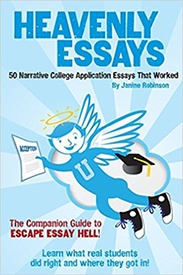
Heavenly Essays: 50 Narrative College Application Essays That Worked
Written by Janine W. Robinson, who blogs about college essays at EssayHell , this book features great sample essays. But it's Robinson's precise and clear explanations of how to use a narrative style in your essay to tell a story about your life that make the book really outstanding. Through long and detailed commentary on each essay, Robinson shows why narrative is exactly the kind of structure that works best for personal essays. You can check out sample sections from the book on her blog. The book retails for $10 new on Amazon.
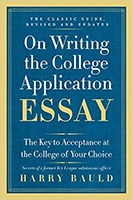
On Writing the College Application Essay, 25th Anniversary Edition: The Key to Acceptance at the College of Your Choice
Harry Bauld used to be an admissions officer at Brown, so he certainly knows what he is talking about when he writes about how and why to avoid clichés and explains how to find and keep your specific voice . Bauld demonstrates his points with sample essays, showing how they go from first to final draft. The book is easy to read, uses humor to make points, and his advice will carry over into your college writing as well. It is $12.50 new on Amazon, but there are much cheaper used copies available there as well.
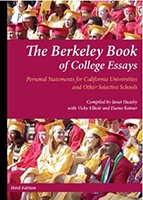
The Berkeley Book of College Essays: Personal Statements for California Universities and Other Select Schools
This compilation features college admissions essays written by seniors from Berkeley High School (which is not affiliated with UC Berkeley). Because the city of Berkeley is economically, racially, and ethnically very diverse, these essays are about many different interests, perspectives, and experiences, and are written in many different styles and tones . Although there is no commentary for the essays, this collection is a great way to get a sense of the broad array of essay possibilities.
Also, because many of the students from Berkeley High apply to UC schools, this collection separates out UC application essay packages. (If you are interested in UC, also check out our own guide to writing excellent UC essays !) This book is currently $15 on Amazon.
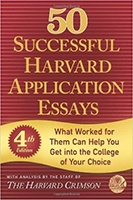
50 Successful Harvard Application Essays: What Worked for Them Can Help You Get into the College of Your Choice
Edited by the staff of the Harvard Crimson, this is a great collection of essays from a not particularly diverse group of students. It is very useful to see how the very top students approach the college essay, as long as their best effort neither intimidates nor stymies you. The contextual material is excellent, with helpful explanations of what makes each essay work well. This book retails for $12 new on Amazon, with much cheaper used copies also available.
Worthwhile Books
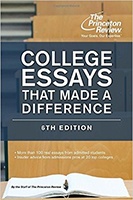
College Essays That Made a Difference, 6th Edition
This Princeton Review guide is mostly distinguished by its introductory material, which has detailed interviews with many different colleges at many different tiers about what role essays play in college applications, what kind of mistakes are okay, and what to write and not to write about. The sample essays themselves come without commentary, but each features a very short bio of the student, including test scores, GPA, a list of colleges where the person applied, and a list of colleges where the person got in. Right now, it's $11.50 new on Amazon, but there are cheaper used copies as well.
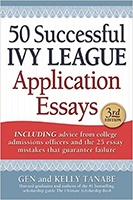
50 Successful Ivy League Application Essays
This collection of of college essays that worked, edited by Gen and Kelly Tanabe, has somewhat spare, but insightful, commentary explaining what each essay does well and what it could have done better . It also includes an interview with an admissions officer explaining how essays are used in admissions decisions and some comments from students about the writing process. The link above is to a downloadable PDF file.
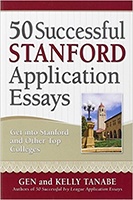
50 Successful Stanford Application Essays: Get into Stanford and Other Top Colleges
If you like the Tanabes' approach (they are the authors of the previous book), then you will find this one useful as well. The narrow diversity of essay content and the style of commentary (thoughtful, but not particularly detailed or expansive) is very similar. It's priced at $13.25 new on Amazon with some used options as well.
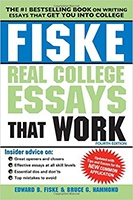
Fiske Real College Essays That Work
The "Fiske" of the title is Edward Fiske, who used to be the Education editor of the NY Times, and who therefore has some experience with what colleges want from their applicants. The book itself features an introduction with some helpful essay-writing tips, a diverse selection of essays built around narrative, but unfortunately has very little commentary to go with each essay . It retails for $12.50 new on Amazon, with cheaper used options available.
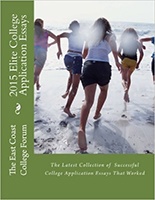
2015 Elite College Application Essays
Although there's almost no commentary or discussion of what makes these essays work, this book is a reasonably good collection of essays from students who are now enrolled at Ivy and other top-tier schools. What's particularly appealing about this college essay compilation is how very new these essays are: all are from students who became freshmen in 2015 . The book is $14 new on Amazon.
Don't Bother
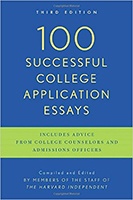
100 Successful College Application Essays
I'd recommend not spending your time on any of the editions of this collection. The essays are decades old in some cases, the topics are clichéd and boring, and there is little to no commentary to make any of them useful.
College Essays Published Online
I'll split my recommendations here into "worthwhile" and "don't bother" categories. There aren't any truly great collections of sample college essays online.
Individual College Websites . There are many essays published online by the various colleges where these students now go. This means these essays are guaranteed to be real, authentic, and to have worked on someone's application . Some of the essays even come with brief commentary by admissions officers about what makes them great. (The link will take you to our list of over 130 essays from more than 15 different colleges.)
Teen Ink Magazine . Teen Ink publishes all sorts of writing by teens, including college admission essays, which are split off into their own section on the site. The essays necessary feature a wide range of experiences and perspectives, so this is a great place to get a broad sense of what other students are writing about. The essays don't have any context except comment sections that run the gamut from generic “this is good” comments to some insight. Readers also get a chance to vote on which essays are featured as #1, #2, etc., which may be misleading because readers of Teen Ink aren't admissions officers.
Don't Bother
Watch out for paid websites like AdmitSee, CollegeMapper, and Acceptional, which claim to give you access to college essays for a monthly or fixed fee. Because of the paywall, there's no way to verify the quality of the essays these sites have. Also, there are enough books that you could borrow from your library that you don’t need to pay monthly fees to these places. Finally, I would particularly stay away from AdmidSee, which uses Amazon reviews for other essay resources as a marketing platform.
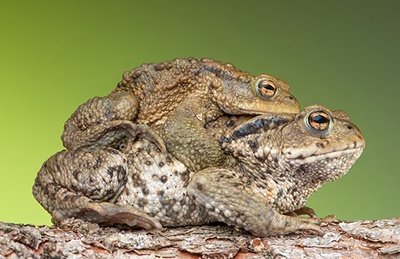
The Best Ways To Use College Admission Essay Samples
So now that you've rounded up a bunch of sample college essays, what should you do with them? Here are some tips for your next steps.
When Should You Read Essay Examples?
I'd advise waiting until after you've done some brainstorming of your own before you start immersing yourself in other people's work and ideas. (If you're not sure how to brainstorm, check out our guide to coming up with great college essay topics .)
This way, you can use other people’s essays to think about different possibilities for writing about your own topic. For example, looking at how other people tackled their life experience can show you:
- how to focus on a different detail in your own story
- how to change the insight you want to draw from your story
- how to think about different ways to start and end your narrative
What Can Good College Essays Teach You?
There are both broad and specific learning opportunities to be found in reading other people's work.
Broadly speaking, seeing how other people are approaching the problem of writing a college essay can jog your own creative process. Likewise, reading a diversity of thoughts and voices will show you that even the most normal and boring seeming experiences be made into riveting essays.
More specifically, if you find essays from applicants to your target school, you can get some sense of the level of sophistication they expect to see from your writing.
Finally, good context and commentary on the essays can show you how they are put together and what makes them work. You can then put this advice to use when rewriting your essay later.
Pitfalls To Avoid
Of course, being surrounded by other people's work, especially when some of that work is much better than what you think you can manage, has its share of temptations. So what do you need to guard against when looking at sample essays?
Plagiarism. This one is basic and obvious. Do not copy these sample essays! Admissions officers have seen them all, read them all, memorized them all – you will not get away with it.
Copying and mimicry. Think of this as a softer kind of plagiarism. Even if you really like someone else’s style, don’t borrow it. Even if someone’s life sounds more exciting than yours, don’t steal a piece of it for your own essay. Why? Because if you don’t sound like yourself, it will be visible to an experienced reader (and guess what, admissions officers are very experienced readers). Also, if you’re writing about experiences that aren't yours, your unfamiliarity will show through the lack of believable details.
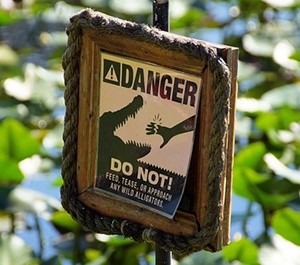
Resources for Essay Writing Advice
In researching this article, I came across books and websites that don't necessarily feature a lot of sample essays, but that give really excellent advice on writing your own college essay. I strongly recommend you spend some time checking them out.
Essay Hell blog . This great resource is written by Janine Anderson Robinson, an English teacher and a journalist, whose book Heavenly Essays I recommended above. The blog posts feature lots and lots of well-explained, detailed, easy to understand advice about how to write your essay, and are broken down into easy to understand, bite-sized nuggets of usefulness.
Slate 's Getting In podcast . The entire series is an interesting look at the college application process, with useful tips and explanations about all aspects what seniors are going through. Check out Episode 2: The Essay , in which a student gets feedback in real time on their essay from a former Princeton director of admissions and a panel of experts talk about essay dos and don’ts. The episode is 26 minutes long.
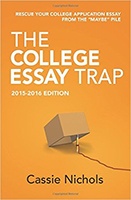
The College Essay Trap: Rescue Your College Application Essay From the "Maybe" Pile
This is incredibly concise and excellent explanation of what not to do and what to avoid when writing your personal statement. It's short, sweet, to the point, and is praised to the skies by legendary Princeton admissions dean Fred Hargadon. Currently $12 new on Amazon.
The Bottom Line
- Look at college essay examples to broaden your own topic brainstorming and get ideas for fixing lackluster topics.
- Look for resources with diverse and recent essays, from many different kinds of students and with explanatory material that explains what makes each essay good.
- Look at essay samples after you’ve generated some of your own ideas to think about different possibilities for writing about your own topic.
- Seeing how other people are approaching the problem of writing a college essay can jog your creative process.
- Avoid both actual plagiarism and “borrowing”: don’t use someone else’s style, voice, or life experiences as your own.
What’s Next?
If you’re starting to work on college essays, check out our article laying out every single kind of essay prompt out there and a step by step guide to writing a great college essay .
Are you working on the Common App essay? Read our breakdown of the Common App prompts and our guide to picking the best prompt for you.
Or maybe you're interested in the University of California? Check out our complete guide to the UC personal statements .
Working on other pieces of your college applications? We’ve got guides to choosing the right college for you , writing about extracurriculars , and requesting teacher recommendations .
Thinking about taking the SAT one last time, or prepping for your first run at it? Read our ultimate guide to studying for the SAT and make sure you're as prepared as possible.
Want to improve your SAT score by 160 points or your ACT score by 4 points? We've written a guide for each test about the top 5 strategies you must be using to have a shot at improving your score. Download it for free now:

These recommendations are based solely on our knowledge and experience. If you purchase an item through one of our links, PrepScholar may receive a commission.

Anna scored in the 99th percentile on her SATs in high school, and went on to major in English at Princeton and to get her doctorate in English Literature at Columbia. She is passionate about improving student access to higher education.
Student and Parent Forum
Our new student and parent forum, at ExpertHub.PrepScholar.com , allow you to interact with your peers and the PrepScholar staff. See how other students and parents are navigating high school, college, and the college admissions process. Ask questions; get answers.

Ask a Question Below
Have any questions about this article or other topics? Ask below and we'll reply!
Improve With Our Famous Guides
- For All Students
The 5 Strategies You Must Be Using to Improve 160+ SAT Points
How to Get a Perfect 1600, by a Perfect Scorer
Series: How to Get 800 on Each SAT Section:
Score 800 on SAT Math
Score 800 on SAT Reading
Score 800 on SAT Writing
Series: How to Get to 600 on Each SAT Section:
Score 600 on SAT Math
Score 600 on SAT Reading
Score 600 on SAT Writing
Free Complete Official SAT Practice Tests
What SAT Target Score Should You Be Aiming For?
15 Strategies to Improve Your SAT Essay
The 5 Strategies You Must Be Using to Improve 4+ ACT Points
How to Get a Perfect 36 ACT, by a Perfect Scorer
Series: How to Get 36 on Each ACT Section:
36 on ACT English
36 on ACT Math
36 on ACT Reading
36 on ACT Science
Series: How to Get to 24 on Each ACT Section:
24 on ACT English
24 on ACT Math
24 on ACT Reading
24 on ACT Science
What ACT target score should you be aiming for?
ACT Vocabulary You Must Know
ACT Writing: 15 Tips to Raise Your Essay Score
How to Get Into Harvard and the Ivy League
How to Get a Perfect 4.0 GPA
How to Write an Amazing College Essay
What Exactly Are Colleges Looking For?
Is the ACT easier than the SAT? A Comprehensive Guide
Should you retake your SAT or ACT?
When should you take the SAT or ACT?
Stay Informed
Get the latest articles and test prep tips!
Looking for Graduate School Test Prep?
Check out our top-rated graduate blogs here:
GRE Online Prep Blog
GMAT Online Prep Blog
TOEFL Online Prep Blog
Holly R. "I am absolutely overjoyed and cannot thank you enough for helping me!”
- Craft and Criticism
- Fiction and Poetry
- News and Culture
- Lit Hub Radio
- Reading Lists

- Literary Criticism
- Craft and Advice
- In Conversation
- On Translation
- Short Story
- From the Novel
- Bookstores and Libraries
- Film and TV
- Art and Photography
- Freeman’s
- The Virtual Book Channel
- Behind the Mic
- Beyond the Page
- The Cosmic Library
- The Critic and Her Publics
- Emergence Magazine
- Fiction/Non/Fiction
- First Draft: A Dialogue on Writing
- Future Fables
- The History of Literature
- I’m a Writer But
- Just the Right Book
- Lit Century
- The Literary Life with Mitchell Kaplan
- New Books Network
- Tor Presents: Voyage Into Genre
- Windham-Campbell Prizes Podcast
- Write-minded
- The Best of the Decade
- Best Reviewed Books
- BookMarks Daily Giveaway
- The Daily Thrill
- CrimeReads Daily Giveaway
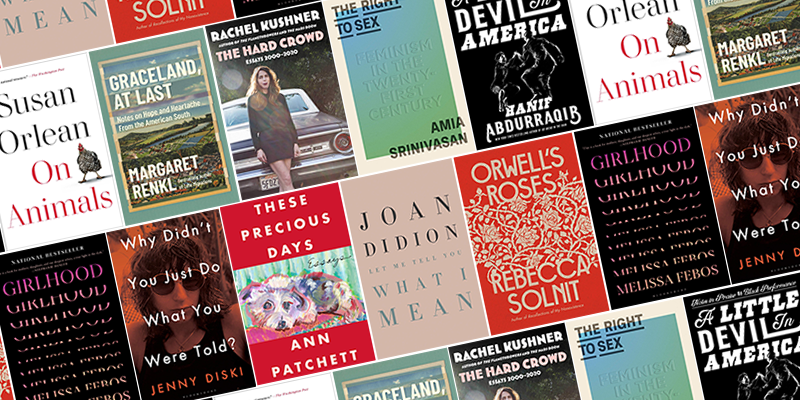
The Best Reviewed Essay Collections of 2021
Featuring joan didion, rachel kushner, hanif abdurraqib, ann patchett, jenny diski, and more.

Well, friends, another grim and grueling plague year is drawing to a close, and that can mean only one thing: it’s time to put on our Book Marks stats hats and tabulate the best reviewed books of the past twelve months.
Yes, using reviews drawn from more than 150 publications, over the next two weeks we’ll be revealing the most critically-acclaimed books of 2021, in the categories of (deep breath): Memoir and Biography ; Sci-Fi, Fantasy, and Horror ; Short Story Collections ; Essay Collections; Poetry; Mystery and Crime; Graphic Literature; Literature in Translation; General Fiction; and General Nonfiction.
Today’s installment: Essay Collections .
Brought to you by Book Marks , Lit Hub’s “Rotten Tomatoes for books.”
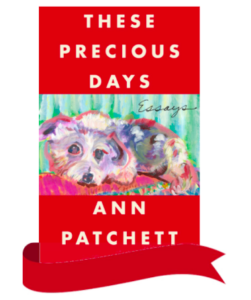
1. These Precious Days by Ann Patchett (Harper)
21 Rave • 3 Positive • 1 Mixed Read Ann Patchett on creating the work space you need, here
“… excellent … Patchett has a talent for friendship and celebrates many of those friends here. She writes with pure love for her mother, and with humor and some good-natured exasperation at Karl, who is such a great character he warrants a book of his own. Patchett’s account of his feigned offer to buy a woman’s newly adopted baby when she expresses unwarranted doubts is priceless … The days that Patchett refers to are precious indeed, but her writing is anything but. She describes deftly, with a line or a look, and I considered the absence of paragraphs freighted with adjectives to be a mercy. I don’t care about the hue of the sky or the shade of the couch. That’s not writing; it’s decorating. Or hiding. Patchett’s heart, smarts and 40 years of craft create an economy that delivers her perfectly understated stories emotionally whole. Her writing style is most gloriously her own.”
–Alex Witchel ( The New York Times Book Review )
2. Let Me Tell You What I Mean by Joan Didion (Knopf)
14 Rave • 12 Positive • 6 Mixed Read an excerpt from Let Me Tell You What I Mean here
“In five decades’ worth of essays, reportage and criticism, Didion has documented the charade implicit in how things are, in a first-person, observational style that is not sacrosanct but common-sensical. Seeing as a way of extrapolating hypocrisy, disingenuousness and doubt, she’ll notice the hydrangeas are plastic and mention it once, in passing, sorting the scene. Her gaze, like a sentry on the page, permanently trained on what is being disguised … The essays in Let Me Tell You What I Mean are at once funny and touching, roving and no-nonsense. They are about humiliation and about notions of rightness … Didion’s pen is like a periscope onto the creative mind—and, as this collection demonstrates, it always has been. These essays offer a direct line to what’s in the offing.”
–Durga Chew-Bose ( The New York Times Book Review )
3. Orwell’s Roses by Rebecca Solnit (Viking)
12 Rave • 13 Positive • 1 Mixed Read an excerpt from Orwell’s Roses here
“… on its simplest level, a tribute by one fine essayist of the political left to another of an earlier generation. But as with any of Solnit’s books, such a description would be reductive: the great pleasure of reading her is spending time with her mind, its digressions and juxtapositions, its unexpected connections. Only a few contemporary writers have the ability to start almost anywhere and lead the reader on paths that, while apparently meandering, compel unfailingly and feel, by the end, cosmically connected … Somehow, Solnit’s references to Ross Gay, Michael Pollan, Ursula K. Le Guin, and Peter Coyote (to name but a few) feel perfectly at home in the narrative; just as later chapters about an eighteenth-century portrait by Sir Joshua Reynolds and a visit to the heart of the Colombian rose-growing industry seem inevitable and indispensable … The book provides a captivating account of Orwell as gardener, lover, parent, and endlessly curious thinker … And, movingly, she takes the time to find the traces of Orwell the gardener and lover of beauty in his political novels, and in his insistence on the value and pleasure of things .”
–Claire Messud ( Harper’s )
4. Girlhood by Melissa Febos (Bloomsbury)
16 Rave • 5 Positive • 1 Mixed Read an excerpt from Girlhood here
“Every once in a while, a book comes along that feels so definitive, so necessary, that not only do you want to tell everyone to read it now, but you also find yourself wanting to go back in time and tell your younger self that you will one day get to read something that will make your life make sense. Melissa Febos’s fierce nonfiction collection, Girlhood , might just be that book. Febos is one of our most passionate and profound essayists … Girlhood …offers us exquisite, ferocious language for embracing self-pleasure and self-love. It’s a book that women will wish they had when they were younger, and that they’ll rejoice in having now … Febos is a balletic memoirist whose capacious gaze can take in so many seemingly disparate things and unfurl them in a graceful, cohesive way … Intellectual and erotic, engaging and empowering[.]”
–Michelle Hart ( Oprah Daily )
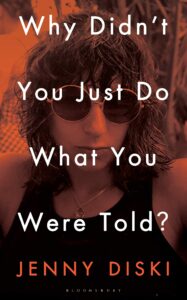
5. Why Didn’t You Just Do What You Were Told by Jenny Diski (Bloomsbury)
14 Rave • 7 Positive
“[Diski’s] reputation as an original, witty and cant-free thinker on the way we live now should be given a significant boost. Her prose is elegant and amused, as if to counter her native melancholia and includes frequent dips into memorable images … Like the ideal artist Henry James conjured up, on whom nothing is lost, Diski notices everything that comes her way … She is discerning about serious topics (madness and death) as well as less fraught material, such as fashion … in truth Diski’s first-person voice is like no other, selectively intimate but not overbearingly egotistic, like, say, Norman Mailer’s. It bears some resemblance to Joan Didion’s, if Didion were less skittish and insistently stylish and generated more warmth. What they have in common is their innate skepticism and the way they ask questions that wouldn’t occur to anyone else … Suffice it to say that our culture, enmeshed as it is in carefully arranged snapshots of real life, needs Jenny Diski, who, by her own admission, ‘never owned a camera, never taken one on holiday.’” It is all but impossible not to warm up to a writer who observes herself so keenly … I, in turn, wish there were more people around who thought like Diski. The world would be a more generous, less shallow and infinitely more intriguing place.”
–Daphne Merkin ( The New York Times Book Review )
6. The Hard Crowd: Essays 2000-2020 by Rachel Kushner (Scribner)
12 Rave • 7 Positive Listen to an interview with Rachel Kushner here
“Whether she’s writing about Jeff Koons, prison abolition or a Palestinian refugee camp in Jerusalem, [Kushner’s] interested in appearances, and in the deeper currents a surface detail might betray … Her writing is magnetised by outlaw sensibility, hard lives lived at a slant, art made in conditions of ferment and unrest, though she rarely serves a platter that isn’t style-mag ready … She makes a pretty convincing case for a political dimension to Jeff Koons’s vacuities and mirrored surfaces, engages repeatedly with the Italian avant garde and writes best of all about an artist friend whose death undoes a spell of nihilism … It’s not just that Kushner is looking back on the distant city of youth; more that she’s the sole survivor of a wild crowd done down by prison, drugs, untimely death … What she remembers is a whole world, but does the act of immortalising it in language also drain it of its power,’neon, in pink, red, and warm white, bleeding into the fog’? She’s mining a rich seam of specificity, her writing charged by the dangers she ran up against. And then there’s the frank pleasure of her sentences, often shorn of definite articles or odd words, so they rev and bucket along … That New Journalism style, live hard and keep your eyes open, has long since given way to the millennial cult of the personal essay, with its performance of pain, its earnest display of wounds received and lessons learned. But Kushner brings it all flooding back. Even if I’m skeptical of its dazzle, I’m glad to taste something this sharp, this smart.”
–Olivia Laing ( The Guardian )
7. The Right to Sex: Feminism in the Twenty-First Century by Amia Srinivasan (FSG)
12 Rave • 7 Positive • 5 Mixed • 1 Pan
“[A] quietly dazzling new essay collection … This is, needless to say, fraught terrain, and Srinivasan treads it with determination and skill … These essays are works of both criticism and imagination. Srinivasan refuses to resort to straw men; she will lay out even the most specious argument clearly and carefully, demonstrating its emotional power, even if her ultimate intention is to dismantle it … This, then, is a book that explicitly addresses intersectionality, even if Srinivasan is dissatisfied with the common—and reductive—understanding of the term … Srinivasan has written a compassionate book. She has also written a challenging one … Srinivasan proposes the kind of education enacted in this brilliant, rigorous book. She coaxes our imaginations out of the well-worn grooves of the existing order.”
–Jennifer Szalai ( The New York Times )
8. A Little Devil in America by Hanif Abdurraqib (Random House)
13 Rave • 4 Positive Listen to an interview with Hanif Abdurraqib here
“[A] wide, deep, and discerning inquest into the Beauty of Blackness as enacted on stages and screens, in unanimity and discord, on public airwaves and in intimate spaces … has brought to pop criticism and cultural history not just a poet’s lyricism and imagery but also a scholar’s rigor, a novelist’s sense of character and place, and a punk-rocker’s impulse to dislodge conventional wisdom from its moorings until something shakes loose and is exposed to audiences too lethargic to think or even react differently … Abdurraqib cherishes this power to enlarge oneself within or beyond real or imagined restrictions … Abdurraqib reminds readers of the massive viewing audience’s shock and awe over seeing one of the world’s biggest pop icons appearing midfield at this least radical of American rituals … Something about the seemingly insatiable hunger Abdurraqib shows for cultural transaction, paradoxical mischief, and Beauty in Blackness tells me he’ll get to such matters soon enough.”
–Gene Seymour ( Bookforum )
9. On Animals by Susan Orlean (Avid Reader Press)
11 Rave • 6 Positive • 1 Mixed Listen to an interview with Susan Orlean here
“I very much enjoyed Orlean’s perspective in these original, perceptive, and clever essays showcasing the sometimes strange, sometimes sick, sometimes tender relationships between people and animals … whether Orlean is writing about one couple’s quest to find their lost dog, the lives of working donkeys of the Fez medina in Morocco, or a man who rescues lions (and happily allows even full grown males to gently chew his head), her pages are crammed with quirky characters, telling details, and flabbergasting facts … Readers will find these pages full of astonishments … Orlean excels as a reporter…Such thorough reporting made me long for updates on some of these stories … But even this criticism only testifies to the delight of each of the urbane and vivid stories in this collection. Even though Orlean claims the animals she writes about remain enigmas, she makes us care about their fates. Readers will continue to think about these dogs and donkeys, tigers and lions, chickens and pigeons long after we close the book’s covers. I hope most of them are still well.”
–Sy Montgomery ( The Boston Globe )
10. Graceland, at Last: Notes on Hope and Heartache from the American South by Margaret Renkl (Milkweed Editions)
9 Rave • 5 Positive Read Margaret Renkl on finding ideas everywhere, here
“Renkl’s sense of joyful belonging to the South, a region too often dismissed on both coasts in crude stereotypes and bad jokes, co-exists with her intense desire for Southerners who face prejudice or poverty finally to be embraced and supported … Renkl at her most tender and most fierce … Renkl’s gift, just as it was in her first book Late Migrations , is to make fascinating for others what is closest to her heart … Any initial sense of emotional whiplash faded as as I proceeded across the six sections and realized that the book is largely organized around one concept, that of fair and loving treatment for all—regardless of race, class, sex, gender or species … What rises in me after reading her essays is Lewis’ famous urging to get in good trouble to make the world fairer and better. Many people in the South are doing just that—and through her beautiful writing, Renkl is among them.”
–Barbara J. King ( NPR )
Our System:
RAVE = 5 points • POSITIVE = 3 points • MIXED = 1 point • PAN = -5 points
- Share on Facebook (Opens in new window)
- Click to share on Twitter (Opens in new window)
- Click to share on Google+ (Opens in new window)
- Click to share on LinkedIn (Opens in new window)
- Click to share on Reddit (Opens in new window)
- Click to share on Tumblr (Opens in new window)
- Click to share on Pinterest (Opens in new window)
- Click to share on Pocket (Opens in new window)

Previous Article
Next article, support lit hub..

Join our community of readers.
to the Lithub Daily
Popular posts.

Follow us on Twitter
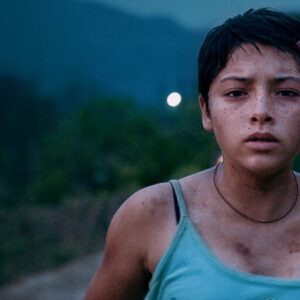
Prayers for the Stolen: How Two Artists Portray the Violence of Human Trafficking in Mexico
- RSS - Posts
Literary Hub
Created by Grove Atlantic and Electric Literature
Sign Up For Our Newsletters
How to Pitch Lit Hub
Advertisers: Contact Us
Privacy Policy
Support Lit Hub - Become A Member
Become a Lit Hub Supporting Member : Because Books Matter
For the past decade, Literary Hub has brought you the best of the book world for free—no paywall. But our future relies on you. In return for a donation, you’ll get an ad-free reading experience , exclusive editors’ picks, book giveaways, and our coveted Joan Didion Lit Hub tote bag . Most importantly, you’ll keep independent book coverage alive and thriving on the internet.

Become a member for as low as $5/month
Subscribe to our newsletter
15 great articles and essays by james baldwin, stranger in the village, notes of a native son, how to cool it by james baldwin, letter from a region in my mind, a talk to teachers, the american dream is at the expense of the american negro by james baldwin, autobiographical notes by james baldwin, a report from occupied territory by james baldwin, if black english isn’t a language, then tell me, what is, many thousands gone, a letter to my nephew, sonny’s blues, the creative process, 150 great articles and essays.
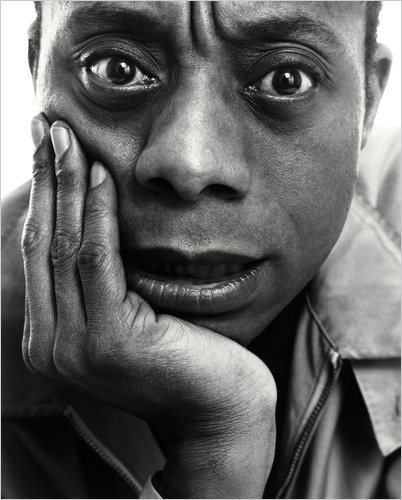
On Literature
Everybody’s protest novel, why i stopped hating shakespeare by james baldwin, collected essays : notes of a native son / nobody knows my name / the fire next time / no name in the street / the devil finds work / other essays.
About The Electric Typewriter We search the net to bring you the best nonfiction, articles, essays and journalism
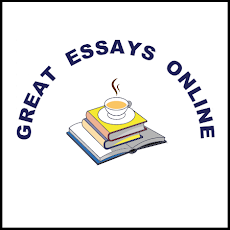
Great Essays Online
- Long Essays
- Short Essays
- Important Days
- Important Days of 2023

3 Best AI Essay Writing Tools for Students
Whether it is for topic exploration, essay content expansion, academic assignments or …

Essay on Astro Tourism in 250 Words | Astrotourism Essay
Essay on Astrotourism in 250 words | Astrotourism essay Astro Tourism has become very …

Narrative Essay on Thrill of Achieving a Long-Term Goal
Here we have written an essay on Thrill of Achieving a Long-Term Goal which is most im…

Salient Features of the Indian Constitution: Upholding Democracy, Equality, and Justice
The Indian Constitution, adopted on 26th January 1950, is a comprehensive document tha…
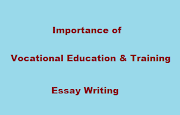
Importance of Vocational Education Essay
Vocational Education has been instrumental in engaging students in carrier oriented p…

Essay on Pollution: A Global Challenge and Call for Action
Essay on Pollution: Growing pollution has become major cause of concern and requires …
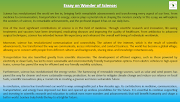
Essay on Wonder of Science 200 Words, 500 Words
Essay on Wonder of Science Essay on Wonder of Science is one of the most important es…

Popular This Week

Essay on War and its effects

Essay on Earth Day in English

Essay on Freebie Politics | Essay on Freebie Culture

Essay on Climate Change | Causes, Effects and Solutions of Climate Change

50 Most Important Essay Topics for Class 6 Students

World Telecommunication Day 2023: Connecting Communities for a Sustainable Future

Water Shortage Solutions Essay | Essay on Water Shortage Solutions

Natural Disaster Essay: Meaning, Types, Causes, Impacts and ways to mitigate effects of Natural Disaster

Essay on Boycott Trend of Bollywood | Essay on Boycott Bollywood

Essay on My Favourite Sport: Basketball: A Teamwork-driven, Physical, and Inclusive Sport | my favourite sport essay
Featured post.
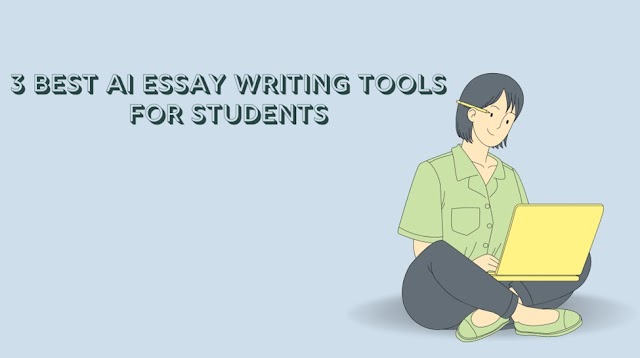
Social Plugin
All time popular.

Christmas Essay in English 10 Lines | 10 Lines on Christmas Day

1000 Words Essay on Corruption | Essay on Corruption 1000 Words
Popular this month.

Essay on the Importance of Sports in Education
Popular this week, topic links.
- Boycott Trend of Bollywood
- Climate Change
- Essay on Democracy
- Essay Writing
- Freebie-Politics
- Gender Discrimination
- Har Ghar Tiranga Essay
- Janbhagidari
- My Aim in Life Essay
- War and its Effect
Quick Links
- Short Essays in English
- Long Essay in English
Menu Footer Widget
- Privacy Policy
Looking to publish? Meet your dream editor, designer and marketer on Reedsy.
Find the perfect editor for your next book
1 million authors trust the professionals on Reedsy. Come meet them.
Blog • Perfecting your Craft
Last updated on Feb 07, 2023
The 50+ Best Writing Websites of 2024
The Internet is full of writing websites and blogs to help people reach their creative goals . If you’ve always dreamt of writing your own book, but don’t know how to get there — or if you’re in the process of writing, but feel unsure about what to do next — then it’s your lucky day! Here we have all the best writing websites of 2024 in one single place for your convenience. They’re also organized by category, and alphabetically within each of those categories, to make each one easier to find. Enjoy!
Best writing websites for writing craft and inspiration
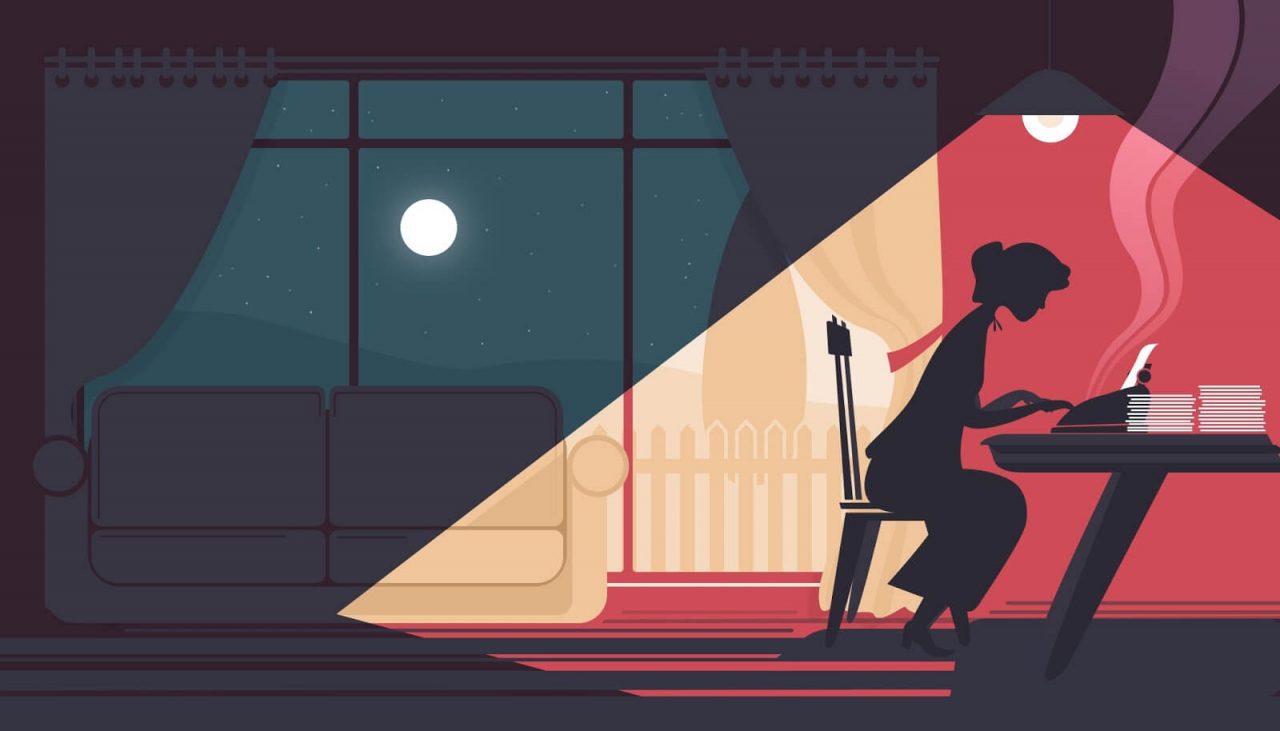
1. Almost an Author
Offering up new content every day, Almost an Author covers a grand scope of writing topics. From genre-specific advice to emotional support on your writing journey, there's tons of useful info here for beginner and veteran writers alike.
2. Association of Writer & Writing Programs
Having just marked their 50th anniversary, AWP is one of the premier authorities on writing. The AWP website provides resources and ample opportunities for authors, teachers, and students at every point in their career. Here you’ll be able to find information about writing programs, career options, and conferences all over the world. Keep in mind, though, that access to some of these features is restricted to members only.
3. Creativity Portal
This is a wonderful hub for creative resources that has been around for a whopping nineteen years! Here you can find writing prompts , creative coaching, printable writing templates, and interviews with authors that will help nourish the right side of your brain.
4. Daily Writing Tips
As the name suggests, this site offers daily writing tips ranging from open-ended prompts and exercises to grammar, spelling, punctuation, and vocabulary. It also covers all writing levels and professions, so it doesn't matter how far along you are in your writing career — DWT is sure to help you out.
Instead of spending thousands of dollars on a master’s degree, you can get your own "DIY MFA" right here! This site (founded by Gabriela Pereira ) aims to cover everything you would learn in a graduate program, while giving you the freedom to choose your own areas of concentration and allocate your time as you please.
6. Electric Literature
While not exactly a craft-focused website — so no straight-up writing advice or prompts — this nonprofit digital publisher showcases literature-related essays, criticism, and recommended readings. If you're looking to brush up on both literary theory and recent literary trends, Electric Lit is the place for you.
7. Fiction University
This virtual university, run by award-winning author Janice Hardy, contains tons of advice and concrete examples to help authors build a strong writing foundation. It's full of blog posts by professionals who share their own processes and techniques, providing tips not just on what you should do as a writer, but on how to make it happen.

8. Helping Writers Become Authors
Longtime author K.M. Weiland offers writing advice that ranges from outlining and structuring to characterization and dialogue — plus all the little details in between. She updates her blog faithfully with topical posts that would pique any writer's (or non-writer's) interest.
9. Insecure Writer's Support Group
Writing is intimidating for everyone , whether you're a multi-published author or you're just starting out. That's why getting support, guidance, and motivation throughout the process is vital! On IWSG, you'll discover a wealth of information on writing, publishing, marketing, and anything else you might need to ultimately overcome your insecurities.
10. Literary Hub
LitHub boasts a superb selection of content for all things literary. Here you can get all the latest book-related news, posts on design and the craft, your daily dose of fiction, and sparkling reviews of new works. One of this site's best features is its section on literature in translation — a great resource for those who want to read books and authors from around the world.
11. LitReactor
The LitReactor blog consists of writing classes, workshops, and a myriad of posts on writing and books ( some of which are even written by us! ). There’s also an online magazine that includes interviews, criticism and analysis, and seasonally appropriate reads and recommendations.
12. LitRejections
An unfortunate occupational hazard of with writing is rejection. This is where a site like LitRejections comes into play! It offers personal stories to help discouraged writers persevere through rejection, and maintain hope and motivation as they move forward in their careers.
13. Live Write Thrive
In this website by professional writer and editor C.S. Lakin, you’ll find plenty of nuanced writing anecdotes and tips. Lakin also supplies annotated critiques that can help you prep your book for publication.
14. NaNoWriMo
Besides serving as the official information hub for NaNoWriMo , this site also lends constant support for those struggling to "win" National Novel Writing Month. Make sure to check out the NaNoWriMo forums, which are chock-full of other people's personal writing tips and strategies to get you through November — and every other month of the year — as a writer.
15. Now Novel
This comprehensive website, founded by author Bridget McNulty , is a go-to for just about every writing-related question you might have. Here you'll also find advice, courses, and even an author dashboard where you can keep track of your own writing progress.
16. Positive Writer
If you often feel uncertain about your creative abilities, this is the site for you. Bryan Hutchinson created Positive Writer to encourage and inspire all those who want to write, no matter how much experience or confidence they have.
17. ProWritingAid
ProWritingAid offers a fantastic manuscript editing software that analyzes your writing and creates reports for you to learn from! This tool also includes a thesaurus, grammar checks, style suggestions, and more — you can learn all about it on the ProWritingAid blog, or in our review of the app !
18. She Writes
A well-established writing website with a feminist bent, She Writes is "the largest online community and content site for women writers... all around the world." The site features thoughtful posts and resources to help writers on their journeys, as well as a personal She Writes blog page for every user who signs up.
19. Well-Storied
Here you can find recent articles, workbooks, tutorials, and fascinating discussions on writing. Kristine Kieffer has an extensive archive of posts as well, where you can procure information on just about any topic related to books and writing.
20. The Write Practice
Fulfilling the promise of their name, every single post on this site emphasizes putting theory into practice! There's simply no better way to become a writer than by creating a routine, and that’s exactly what The Write Practice helps facilitate.
21. Writer’s Digest
Writer's Digest is one of the most encyclopedic writing websites out there — after all, the print magazine has been around for almost a century now! Here you’ll find genre and vocation-organized articles, events and competitions, webinars, templates, tutorials, and so much more.
22. Writer Unboxed
Writer Unboxed features articles by authors and industry professionals, focused specifically on the craft and business of fiction writing.
23. The Writing Cooperative
Plain and simple, this is a group of people who want to help each other become better writers. On Writing Cooperative, you will find articles that cover just about every aspect of the writing life. They also have monthly writing challenges to keep you incentivized, and there’s even a space where you can submit your own article to the blog!
24. Writing.com
This is an absolutely all-inclusive community for writers . It’s open to all levels and provides a creative, supportive environment for all members, as well as portfolios to store and display their writing. Like most writing websites, it also includes a plethora of writing tools , contests, and rewards.
25. Catapult: Don’t Write Alone
Don’t Write Alone is a blog written by the Catapult team dedicated to helping writers grow their skills. As a publisher and magazine founded in 2005, Catapult has seen a lot of works and now they’re spilling all the details. From interviews, to craft essays, to writer lifestyle essays, Catapult covers it all.
26. Kirkus Review’s Writers’ Center
Kirkus Review is known for its prestigious $50,000 dollar annual prize and its bi-monthly issues where they critique hundreds of recently published books. But, did you know they also have a section of their website devoted to helping emerging writers grow their skills and navigate the publishing industry? They’re always up to date on the latest trends — if they aren’t creating new trends themselves.
27. Writers Write
An invaluable resource for creative writers, business writers, or bloggers, Writers Write offers over 1400 articles, courses, and workbooks to help you take your writing practice to the next level. Alongside their educational content, they offer book reviews, trivia on famous authors, and prompts. Sign up for their inspirational newsletters for regular hits of motivation that will keep you writing.
28. The Narrative Arc
Beginning as a home to Andie R. Cranford’s writing journey, The Narrative Arc is now a treasure trove of practical tips and prompts to inspire your creativity. Breakdowns of popular books are particularly handy for the budding author — but whether exploring writing for the first time or tightening the bolts on your Franken-novel, the site's ideas on craft are elegant and inspiring.
Best writing websites in the publishing industry
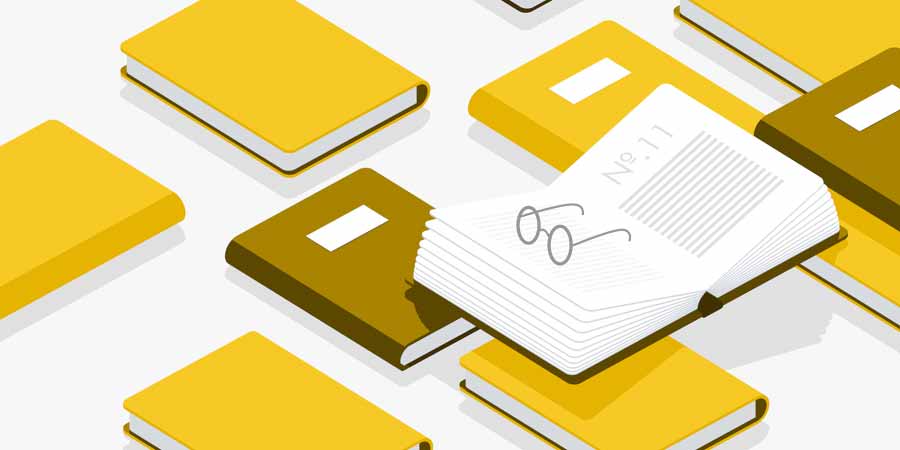
29. Agent Query
This database allows authors to perform in-depth searches for literary agents . You can narrow your search by genre and keywords, view agents’ full profiles, and see if they are currently accepting queries — all for free!
30. The Creative Penn
Besides being a bestselling author on various topics, Joanna Penn is also a leading voice in self-publishing . On her punnily named site, you’ll find abundant information related to writing, self-publishing, marketing, and everything else you mind need to make a living as a writer.
31. Digital Pubbing
Digital Pubbing provides industry news, interviews with indie authors, and resources for learning all about ebooks and the publishing industry. In accordance with the name, this is the perfect site for any author hoping to absorb some serious digital knowledge.
32. The Independent Publishing Magazine
We know it might seem like we're repeating ourselves, but this website really is all about publishing (both independent and traditional, despite what the name indicates). Whatever info you need about self-publishing, trad pub, or hybrid publishing , you’ll definitely be able to find it here.
33. Publishers Weekly
And if you have a specific question about the publishing world, you’ll most likely find the answer here. This weekly magazine is packed full of news, reviews, announcements, and many other resources on the industry. It has been dubbed as "the Bible of the book business" and with its extensive archive, it’s easy to see why.
34. Publishing Perspectives
Publishing Perspectives is another leading source of publishing info, specializing in industry news and topical articles. Aimed at publishers, agents , and authors alike, it features a variety of posts that cover book fairs, distribution, education, and much more.
35. Query Shark
Not sure where your query letter is up to snuff? Query Shark offers the opportunity to have your query critiqued, and to read detailed query critiques of other authors' letters, so you can get the best possible results for your book. Be warned, though, that this sharp-toothed feedback isn't for the weak of heart.
36. Writer Beware
This amazingly thorough site compiles information on schemes and scams that affect authors , especially those run through email and the Internet. It’s sponsored by the Science Fiction and Fantasy Writers of America, but obviously applies to authors everywhere. If you're a fresh-faced author trying to get published, definitely check it out — it could save you from losing thousands of dollars in an elaborate scam.
37. The Darling Axe
When the industry professionals at The Darling Axe aren’t working on manuscripts, they flock to the internet to share their hot takes on the publishing industry. They also host writing contests throughout the year to build a writing community and give unpublished authors the chance to get feedback from professionals.
Best writing websites for marketing and design

38. David Gaughran
An experienced author of historical adventures, short stories, and popular books for writers , David Gaughran is one of the definitive writing experts out there. His eponymous blog contains plenty of info on marketing and self-publishing, plus workshops to help aspiring authors. And similar to Writer Beware, he's the noble opposition of online publishing scams and scammers — so if you're frustrated by these issues, you'll discover a blissfully sympathetic voice on his blog.
39. Kikolani
Focused specifically on marketing, Kikolani offers tips and strategies for bloggers who want to grow their presence and attract more readers. Here you’ll find information on brand development , social media, customer retention, and other useful tips that you can put to good use as a blogger. (If you're just getting started, though, we'd recommend this course .)
40. Kindlepreneur
Dave Chesson is — in his own words — a “digital marketing nut.” His blog has all the information you could ever need about Kindle book publishing , how to write to market, increasing your rankings on Amazon, and lots more practical tips and advice.
41. Storiad
Storiad is a marketing platform that helps authors and publishers sell books. Go here for essential information on writing apps , databases, tools, and budgeting to help you run your own publishing campaign from start to finish.
42. Writers & Artists
Part of the distinguished Bloomsbury, Writers & Artists has quite a few articles on writing and the self-publishing process. They also offer editorial services and events on many different topics, like genre-specific writing courses and how to get connected with agents .
43. Your Writer Platform
Naturally, this site is dedicated to building your very own writer platform. There are tons of tips, resources, tools, how-tos, and even individual consulting services to help you build the platform that works best for you and your marketing needs.
Best writing blogs by industry professionals

44. Goins, Writer
Bestselling author Jeff Goins created this blog to share his thoughts on writing and to inspire others to chase their creative dreams. He's especially good at breaking complex topics down into digestible bits — new writers, go here for your primers.
45. Jane Friedman
With copious experience in the publishing industry, Jane Friedman offers online classes and articles on the entire process of book publishing. She's a real goldmine of business knowledge, so keep her in mind for when you're ready to publish your book.
46. Nail Your Novel
As a bestselling former ghostwriter who now publishes under her own name, Roz Morris provides advice about writing, self-publishing, and of course, ghostwriting . If you're interested in becoming a ghostwriter, be sure to check out her courses!
47. Nathan Bransford
Nathan Bransford is a former literary agent who posts all about the inner workings of publishing, as well and information on agents and self-publishing. He also does consultations, edits, and critiques .
48. Rachelle Gardner
Skillful agent Rachelle Gardner has negotiated over 200 contracts with over twenty publishers and helped more than 100 authors fulfill their dreams of publishing. On her blog, she offers writing, publishing, and social media coaching, along with general writing and publishing tips.
49. Kris Writes
For regular insights from a New York Times bestselling author, look no further than Kristine Kathryn Rusch's blog. On Mondays, she posts free short stories for authors to find inspiration in, and Wednesdays she posts in her “Business Musings” collection where she breaks down news from the publishing industry and offers her inside opinions.
50. The Marginalian
Maria Popova describes her site as “a record of my own becoming as a person — intellectually, creatively, spiritually, poetically — drawn from my extended marginalia on the search for meaning across literature, science, art, philosophy, and the various other tendrils of human thought and feeling.” She sends out a Sunday newsletter with thoughtful deconstruction of the week’s best liberal arts goings-on to help broaden her readers’ appreciation of the creative world.
51. John August
For all the screenwriters out there, John August co-hosts a weekly podcast with fellow screenwriter Craig Mazin discussing both the craft and business of screenwriting while breaking down popular movies. To help screenwriters really get a feel for the process of working with a studio, John has posted multiple versions of scripts from different stages in the production process on films and series he’s written, including Charlie and the Chocolate Factory , Big Fish , and Chernobyl .
What are some of your favorite writing websites? Let us know in the comments below!
Continue reading
Recommended posts from the Reedsy Blog

How Many Sentences Are in a Paragraph?
From fiction to nonfiction works, the length of a paragraph varies depending on its purpose. Here's everything you need to know.

Narrative Structure: Definition, Examples, and Writing Tips
What's the difference between story structure and narrative structure? And how do you choose the right narrative structure for you novel?

What is the Proust Questionnaire? 22 Questions to Write Better Characters
Inspired by Marcel Proust, check out the questionnaire that will help your characters remember things past.

What is Pathos? Definition and Examples in Literature
Pathos is a literary device that uses language to evoke an emotional response, typically to connect readers with the characters in a story.

How to Start a Children’s Book: Coming Up with Your Big Idea
If you've ever dreamed of writing a children's book but aren't sure where to start, check out this post to learn more about how you can create the perfect story for kids.

How to Become a Travel Writer in 5 Steps: A Guide for Travel Bugs
If you want to get paid to share your adventures, learn how to become a travel writer with these five tips.
Join a community of over 1 million authors
Reedsy is more than just a blog. Become a member today to discover how we can help you publish a beautiful book.
Bring your stories to life
Use our free writing app to finally write — and publish — that book!

1 million authors trust the professionals on Reedsy. Come meet them.
Enter your email or get started with a social account:
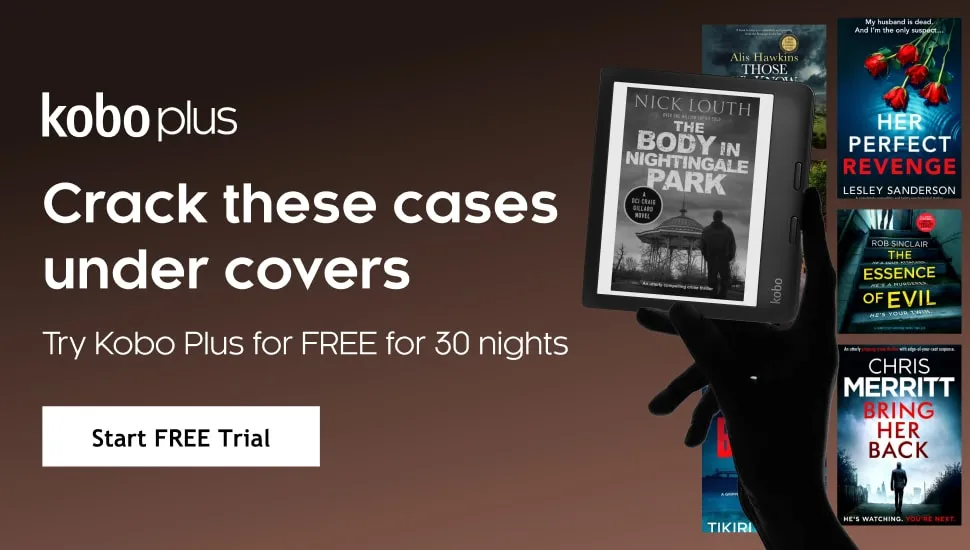
18 Essay-Length Short Memoirs to Read Online on Your Lunch Break
Emily Polson
Emily Polson is a freelance writer and publishing assistant at Simon & Schuster. Originally from central Iowa, she studied English and creative writing at Belhaven University in Jackson, Mississippi, before moving to a small Basque village to teach English to trilingual teenagers. Now living in Brooklyn, she can often be found meandering through Prospect Park listening to a good audiobook. Twitter: @emilycpolson | https://emilycpolson.wordpress.com/
View All posts by Emily Polson
I love memoirs and essays, so the genre of essay-length short memoirs is one of my favorites. I love delving into the details of other people’s lives. The length allows me to read broadly on a whim with minimal commitment. In roughly 5–30 minutes, I can consume a complete morsel of literature, which always leaves me happier than the same amount of time spent doom-scrolling through my various social news feeds.
What are short memoirs?
What exactly are short memoirs? I define them as essay-length works that weave together life experiences around a central theme. You see examples of short memoirs all the time on sites like Buzzfeed and The New York Times . Others are stand-alone pieces published in essay collections.
Memoir essays were my gateway into reading full-length memoirs. It was not until I took a college class on creative nonfiction that I realized memoirs were not just autobiographies of people with exciting lives. Anyone with any amount of life experience can write a memoir—no dramatic childhood or odd-defying life accomplishments required. A short memoir might be an account of a single, life-changing event, or it may be reflection on a period of growth or transition.
Of course, when a young adult tells people she likes writing creative nonfiction—not journalism or technical writing—she hears a lot of, “You’re too young to write a memoir!” and “What could someone your age possibly have to write about?!” As Flannery O’Connor put it, however, “The fact is that anybody who has survived his childhood has enough information about life to last him the rest of his days. If you can’t make something out of a little experience, you probably won’t be able to make it out of a lot. The writer’s business is to contemplate experience, not to be merged in it.”
Memoir essay examples
As the lit magazine Creative Nonfiction puts it, personal essays are just “True stories, well told.” And everyone has life stories worth telling.
Here are a few of my favorite memoir examples that are essay length.
SHORT MEMOIRS ABOUT GROWING UP
Scaachi koul, “there’s no recipe for growing up”.
In this delightful essay, Koul talks about trying to learn the secrets of her mother’s Kashmiri cooking after growing up a first-generation American. The story is full of vivid descriptions and anecdotal details that capture something so specific it transcends to the realm of universal. It’s smart, it’s funny, and it’ll break your heart a little as Koul describes “trying to find my mom at the bottom of a 20-quart pot.”
ASHLEY C. FORD, “THE YEAR I GREW WILDLY WHILE MEN LOOKED ON”
This memoir essay is for all the girls who went through puberty early in a world that sexualizes children’s bodies. Ford weaves together her experiences of feeling at odds with her body, of being seen as a “distraction” to adult men, of being Black and fatherless and hungry for love. She writes, “It was evident that who I was inside, who I wanted to be, didn’t match the intentions of my body. Outside, there was no little girl to be loved innocently. My body was a barrier.”
Kaveh Akbar, “How I Found Poetry in Childhood Prayer”
Akbar writes intense, searing poetry, but this personal essay contextualizes one of his sweetest poems, “Learning to Pray,” which is cradled in the middle of it. He describes how he fell in love with the movement, the language, and the ceremony of his Muslim family’s nightly prayers. Even though he didn’t (and doesn’t) speak Arabic, Akbar points to the musicality of these phonetically-learned hymns as “the bedrock upon which I’ve built my understanding of poetry as a craft and as a meditative practice.” Reading this essay made me want to reread his debut poetry collection, Calling a Wolf a Wolf , all over again.
JIA TOLENTINO, “LOSING RELIGION AND FINDING ECSTASY IN HOUSTON”
New Yorker staff writer Jia Tolentino grew up attending a Houston megachurch she referred to as “the Repentagon.” In this personal essay, she describes vivid childhood memories of her time there, discussing how some of the very things she learned from the church contributed to her growing ambivalence toward it and its often hypocritical congregants. “Christianity formed my deepest instincts,” she writes, “and I have been walking away from it for half my life.” As the essay title suggests, this walking away coincided with her early experiences taking MDMA, which offered an uncanny similarity to her experience of religious devotion.
funny short memoirs
Patricia lockwood, “insane after coronavirus”.
Author Patricia Lockwood caught COVID-19 in early March 2020. In addition to her physical symptoms, she chronicled the bizarre delusions she experienced while society also collectively operated under the delusion that this whole thing would blow over quickly. Lockwood has a preternatural ability to inject humor into any situation, even the dire ones, by highlighting choice absurdities. This is a rare piece of pandemic writing that will make you laugh instead of cry–unless it makes you cry from laughing.
Harrison Scott Key, “My Dad Tried to Kill Me with an Alligator”
This personal essay is a tongue-in-cheek story about the author’s run-in with an alligator on the Pearl River in Mississippi. Looking back on the event as an adult, Key considers his father’s tendencies in light of his own, now that he himself is a dad. He explores this relationship further in his book-length memoir, The World’s Largest Man , but this humorous essay stands on its own. (I also had the pleasure of hearing him read this aloud during my school’s homecoming weekend, as Key is an alumnus of my alma mater.)
David Sedaris, “Me Talk Pretty One Day”
Sedaris’s humor is in a league of its own, and he’s at his best in the title essay from Me Talk Pretty One Day . In it, he manages to capture the linguistic hilarities that ensue when you combine a sarcastic, middle-aged French student with a snarky French teacher.
SAMANTHA IRBY, “THE WORST FRIEND DATE I EVER HAD”
Samantha Irby is one of my favorite humorists writing today, and this short memoir essay about the difficulty of making friends as an adult is a great introduction to her. Be prepared for secondhand cringe when you reach the infamous moment she asks a waiter, “Are you familiar with my work?” After reading this essay, you’ll want to be, so check out Wow, No Thank You . next.
Bill Bryson, “Coming Home”
Bryson has the sly, subtle humor that only comes from Americans who have spent considerable time living among dry-humored Brits. In “Coming Home,” he talks about the strange sensation of returning to America after spending his first twenty years of adulthood in England. This personal essay is the first in a book-length work called I’m a Stranger Here Myself , in which Bryson revisits American things that feel like novelties to outsiders and the odd former expat like himself.
Thought-provoking Short memoirs
Tommy orange, “how native american is native american enough”.
Many people claim some percentage of Indigenous ancestry, but how much is enough to “count”? Novelist Tommy Orange–author of There There –deconstructs this concept, discussing his relationship to his Native father, his Certificate of Degree of Indian Blood, and his son, who will not be considered “Native enough” to join him as an enrolled member of the Cheyenne and Arapaho Tribes. “ How come math isn’t taught with stakes?” he asks in this short memoir full of lingering questions that will challenge the way you think about heritage.
Christine Hyung-Oak Lee, “I Had a Stroke at 33”
Lee’s story is interesting not just because she had a stroke at such a young age, but because of how she recounts an experience that was characterized by forgetting. She says that after her stroke, “For a month, every moment of the day was like the moment upon wakening before you figure out where you are, what time it is.” With this personal essay, she draws readers into that fragmented headspace, then weaves something coherent and beautiful from it.
Kyoko Mori, “A Difficult Balance: Am I a Writer or a Teacher?”
In this refreshing essay, Mori discusses balancing “the double calling” of being a writer and a teacher. She admits that teaching felt antithetical to her sense of self when she started out in a classroom of apathetic college freshmen. When she found her way into teaching an MFA program, however, she discovered that fostering a sanctuary for others’ words and ideas felt closer to a “calling.” While in some ways this makes the balance of shifting personas easier, she says it creates a different kind of dread: “Teaching, if it becomes more than a job, might swallow me whole and leave nothing for my life as a writer.” This memoir essay is honest, well-structured, and layered with plenty of anecdotal details to draw in the reader.
Alex Tizon, “My Family’s Slave”
In this heartbreaking essay, Tizon pays tribute to the memory of Lola, the domestic slave who raised him and his siblings. His family brought her with them when they emigrated to America from the Philippines. He talks about the circumstances that led to Lola’s enslavement, the injustice she endured throughout her life, and his own horror at realizing the truth about her role in his family as he grew up. While the story is sad enough to make you cry, there are small moments of hope and redemption. Alex discusses what he tried to do for Lola as an adult and how, upon her death, he traveled to her family’s village to return her ashes.
Classic short memoirs
James baldwin, “notes of a native son”.
This memoir essay comes from Baldwin’s collection of the same name. In it, he focuses on his relationship with his father, who died when Baldwin was 19. He also wrestles with growing up black in a time of segregation, touching on the historical treatment of black soldiers and the Harlem Riot of 1943. His vivid descriptions and honest narration draw you into his transition between frustration, hatred, confusion, despair, and resilience.
JOAN DIDION, “GOODBYE TO ALL THAT”
Didion is one of the foremost literary memoirists of the twentieth century, combining journalistic precision with self-aware introspection. In “Goodbye to All That,” Didion recounts moving to New York as a naïve 20-year-old and leaving as a disillusioned 28-year-old. She captures the mystical awe with which outsiders view the Big Apple, reflecting on her youthful perspective that life was still limitless, “that something extraordinary would happen any minute, any day, any month.” This essay concludes her masterful collection, Slouching Towards Bethlehem .
Tim O’Brien, “The Things They Carried”
This is the title essay from O’Brien’s collection, The Things They Carried . It’s technically labeled a work of fiction, but because the themes and anecdotes are pulled from O’Brien’s own experience in the Vietnam War, it blurs the lines between fact and fiction enough to be included here. (I’m admittedly predisposed to this classification because a college writing professor of mine included it on our creative nonfiction syllabus.) The essay paints an intimate portrait of a group of soldiers by listing the things they each carry with them, both physical and metaphorical. It contains one of my favorite lines in all of literature: “They all carried ghosts.”
Multi-Media Short Memoirs
Allie brosh, “richard”.
In this blog post/webcomic, Allie Brosh tells the hilarious story about the time as a child that she, 1) realized neighbors exist, and 2) repeatedly snuck into her neighbor’s house, took his things, and ultimately kidnapped his cat. Her signature comic style drives home the humor in a way that will split your sides. The essay is an excerpt from Brosh’s second book, Solutions and Other Problems , but the web version includes bonus photos and backstory. For even more Allie classics, check out “Adventures in Depression” and “Depression Part Two.”
George Watsky, “Ask Me What I’m Doing Tonight”
Watsky is a rapper and spoken word poet who built his following on YouTube. Before he made it big, however, he spent five years performing for groups of college students across the Midwest. “Ask Me What I’m Doing Tonight!” traces that soul-crushing monotony while telling a compelling story about trying to connect with people despite such transience. It’s the most interesting essay about boredom you’ll ever read, or in this case watch—he filmed a short film version of the essay for his YouTube channel. Like his music, Watsky’s personal essays are vulnerable, honest, and crude, and the whole collection, How to Ruin Everything , is worth reading.
If you’re looking for even more short memoirs, keep an eye on these pages from Literary Hub , Buzzfeed , and Creative Nonfiction . You can also delve into these 25 nonfiction essays you can read online and these 100 must-read essay collections . Also be sure to check out the “Our Reading Lives” tag right here on Book Riot, where you’ll find short memoirs like “Searching for Little Free Libraries as a Way to Say Goodbye” and “How I Overcame My Fear of Reading Contemporary Poets.”
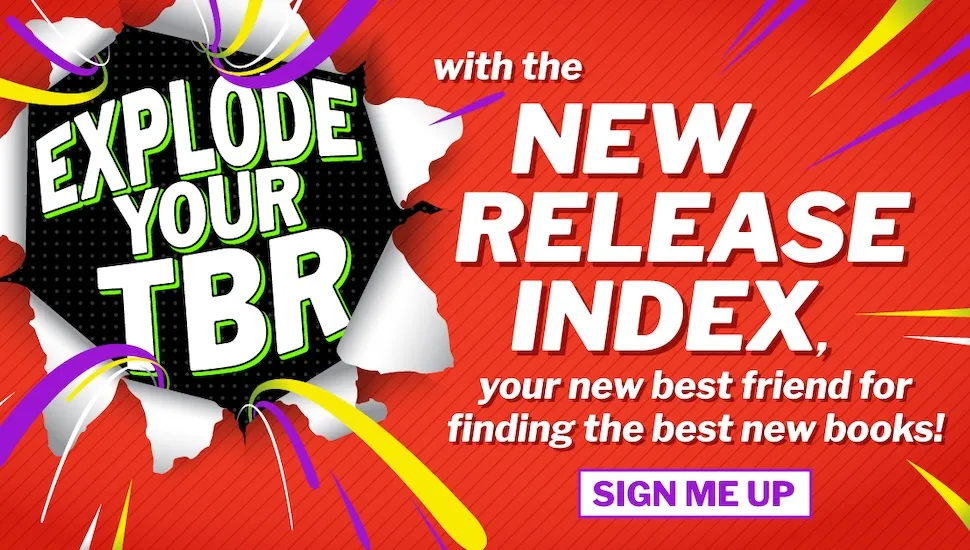
You Might Also Like

- What's New?
- About Authors
- Foundations
- Writer's Handbook
- Peer Editing Form
- Student's Book Audio
- Peer Editing Forms
- Vocabulary Index
- ExamView Test Center
- Teacher's Notes

Great Writing Makes Great Writers
Now in the fifth edition, Great Writing is a six-level series that helps students develop their academic writing with expanded vocabulary building, sentence development, and National Geographic content to spark ideas.
Great Writing provides clear explanations, academic writing models, and focused practice to help students write great sentences, paragraphs, and essays.
- A new unit structure offers students the targeted practice and skills they need to become competent writers
- Updated Building Better Sentences starts with editing and finishes with sentence combining for more refined writing
- Updated Building Better Vocabulary highlights academic words and gives many opportunities to practice
- New Words to Know boxes highlight academic and carefully-leveled words that students will frequently use
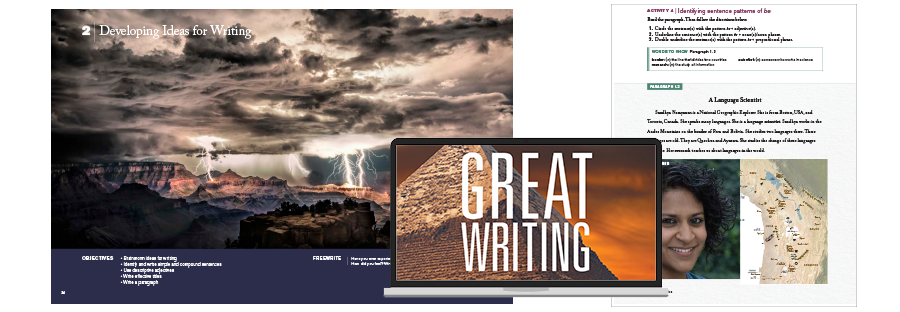
Ultimate Guide to Writing Your College Essay
Tips for writing an effective college essay.
College admissions essays are an important part of your college application and gives you the chance to show colleges and universities your character and experiences. This guide will give you tips to write an effective college essay.
Want free help with your college essay?
UPchieve connects you with knowledgeable and friendly college advisors—online, 24/7, and completely free. Get 1:1 help brainstorming topics, outlining your essay, revising a draft, or editing grammar.
Writing a strong college admissions essay
Learn about the elements of a solid admissions essay.
Avoiding common admissions essay mistakes
Learn some of the most common mistakes made on college essays
Brainstorming tips for your college essay
Stuck on what to write your college essay about? Here are some exercises to help you get started.
How formal should the tone of your college essay be?
Learn how formal your college essay should be and get tips on how to bring out your natural voice.
Taking your college essay to the next level
Hear an admissions expert discuss the appropriate level of depth necessary in your college essay.
Student Stories
Student Story: Admissions essay about a formative experience
Get the perspective of a current college student on how he approached the admissions essay.
Student Story: Admissions essay about personal identity
Get the perspective of a current college student on how she approached the admissions essay.
Student Story: Admissions essay about community impact
Student story: admissions essay about a past mistake, how to write a college application essay, tips for writing an effective application essay, sample college essay 1 with feedback, sample college essay 2 with feedback.
This content is licensed by Khan Academy and is available for free at www.khanacademy.org.
Your path to academic success
Improve your paper with our award-winning Proofreading Services , Plagiarism Checker , Citation Generator , AI Detector & Knowledge Base .
Proofreading & Editing
Get expert help from Scribbr’s academic editors, who will proofread and edit your essay, paper, or dissertation to perfection.
Plagiarism Checker
Detect and resolve unintentional plagiarism with the Scribbr Plagiarism Checker, so you can submit your paper with confidence.
Citation Generator
Generate accurate citations with Scribbr’s free citation generator and save hours of repetitive work.

Happy to help you
You’re not alone. Together with our team and highly qualified editors , we help you answer all your questions about academic writing.
Open 24/7 – 365 days a year. Always available to help you.
Very satisfied students
This is our reason for working. We want to make all students happy, every day.
The editor gave me comprehensive…
The editor gave me comprehensive instructions.
the editor Tanvi has taken seriously my…
the editor Tanvi has taken seriously my writings.
Scribbr is not just for students
I very much appreciate the professional way in which the manuscript for my book was edited. It is a great comfort that Scribbr exists, and I can recommend it to students but also to experienced academics
A pleasant journey to see all the editing and suggestions provided
As a loyal customer, very happy to see all the editing made!
Next stop, dissertation!
They informed me of the process as it was evolving. They met the deadline and gave me great ideas for improving my paper. I felt the kindness and knowledge of my editor through the editing markings. The experience left me feeling more confident in myself and that I can trust them to have my back. I will entrust them with my dissertation.
Scribbr hold their promise of 100% satisfaction guarantee. They responded quickly on my complains and gave a solution to my problem. ve
Scribbr hold their promise of 100% satisfaction guarantee. They responded quickly on my complains and gave a solution to my problem. Thank you for this.
Very good bajajsvajajwnnss
Very helpful
Very helpful, constructive comments!
Easy, fast and elegant too
A really great experience with Scribbr - I needed to get a second proofreader to finish proofing my PhD thesis due to the illness of my initial editor. I was a bit nervous about sending off only two disconnected sections of the document, but the system allowed me to a) choose what pages to submit (so I actually hadn't needed to prep a special partial document), and b) give some context to the editor. It was all very clear. Neshika did a fantastic job, and even delivered a little early on a rush-job deadline. Her comments were professional but human, with a clear sense of her personality coming through and she explained the principles behind changes very clearly. Her edits not only improved clarity, but were elegantly worded too. Worth every penny. Thank you!
based on the study
great experience they helped me with my…
great experience they helped me with my paper and lost my cat
I like it way better than…
I like it way better than citationmachine.net on citation machine you cant even create a citation without something popping up then you click out of it and you lose everything you put in it to create the citation. and something popping up, not even a second after you click out of it to go back to creating the citation.
Trusted. This is my 7th manuscript submission to Scribbr and they helped me a lot in improving the quality of my English. The editor also provides several tips that need to be considered in order to clarify sentences. Happy working with scribbr.
Thanks to the editor
Alexandra edited my sloppy text with great attention. She propose how to clarify a lot of vague places. She made me valuable notes to think about sense and language of my text. Her help significantly improved my text, not only in terms of language, but also in its sence, so I thank her very much.
Outstanding job!
The individual who proofread my paper provided great feedback. I am very grateful for the amount of time spent reviewing and critiquing the document. I would love to use him again. Thanks so much.
A Surprisingly Personalized Touch: Beyond Expectations with Doug
I was nervous about utilizing an online service because I assumed the edits would be stiff and not aligned with my tone and writing style. However, the edits were insightful and very much aligned with my style. I would recommend this service to everyone! My editor, Doug, was exceptional AND I received it 3 days early! Thank you!
nnnnnnnnnnnnnnnnnnnnnnnnnnnnnnnnnnn
It smells good
Very clear instruction on what I'm…
Very clear instruction on what I'm supposed to do in the document.
Thank You! You did a great job!
Everything you need to write an A-grade paper
Free resources used by 5,000,000 students every month.
Bite-sized videos that guide you through the writing process. Get the popcorn, sit back, and learn!
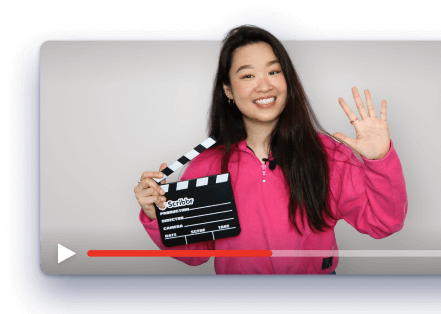
Lecture slides
Ready-made slides for teachers and professors that want to kickstart their lectures.
- Academic writing
- Citing sources
- Methodology
- Research process
- Dissertation structure
- Language rules
Accessible how-to guides full of examples that help you write a flawless essay, proposal, or dissertation.

Chrome extension
Cite any page or article with a single click right from your browser.
Time-saving templates that you can download and edit in Word or Google Docs.
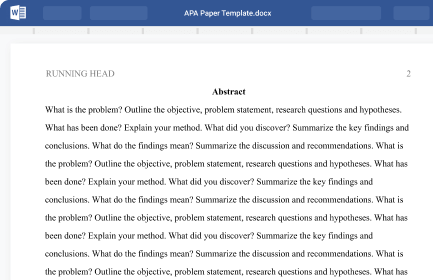
Help you achieve your academic goals
Whether we’re proofreading and editing , checking for plagiarism or AI content , generating citations, or writing useful Knowledge Base articles , our aim is to support students on their journey to become better academic writers.
We believe that every student should have the right tools for academic success. Free tools like a paraphrasing tool , grammar checker, summarizer and an AI Proofreader . We pave the way to your academic degree.
Ask our team
Want to contact us directly? No problem. We are always here for you.
- Email [email protected]
- Start live chat
- Call +1 (510) 822-8066
- WhatsApp +31 20 261 6040

Frequently asked questions
Our team helps students graduate by offering:
- A world-class citation generator
- Plagiarism Checker software powered by Turnitin
- Innovative Citation Checker software
- Professional proofreading services
- Over 300 helpful articles about academic writing, citing sources, plagiarism, and more
Scribbr specializes in editing study-related documents . We proofread:
- PhD dissertations
- Research proposals
- Personal statements
- Admission essays
- Motivation letters
- Reflection papers
- Journal articles
- Capstone projects
Scribbr’s Plagiarism Checker is powered by elements of Turnitin’s Similarity Checker , namely the plagiarism detection software and the Internet Archive and Premium Scholarly Publications content databases .
The add-on AI detector is powered by Scribbr’s proprietary software.
The Scribbr Citation Generator is developed using the open-source Citation Style Language (CSL) project and Frank Bennett’s citeproc-js . It’s the same technology used by dozens of other popular citation tools, including Mendeley and Zotero.
You can find all the citation styles and locales used in the Scribbr Citation Generator in our publicly accessible repository on Github .

- Words, Language & Grammar

Enjoy fast, free delivery, exclusive deals, and award-winning movies & TV shows with Prime Try Prime and start saving today with fast, free delivery
Amazon Prime includes:
Fast, FREE Delivery is available to Prime members. To join, select "Try Amazon Prime and start saving today with Fast, FREE Delivery" below the Add to Cart button.
- Cardmembers earn 5% Back at Amazon.com with a Prime Credit Card.
- Unlimited Free Two-Day Delivery
- Streaming of thousands of movies and TV shows with limited ads on Prime Video.
- A Kindle book to borrow for free each month - with no due dates
- Listen to over 2 million songs and hundreds of playlists
- Unlimited photo storage with anywhere access
Important: Your credit card will NOT be charged when you start your free trial or if you cancel during the trial period. If you're happy with Amazon Prime, do nothing. At the end of the free trial, your membership will automatically upgrade to a monthly membership.
Buy new: $45.00
Return this item for free.
Free returns are available for the shipping address you chose. You can return the item for any reason in new and unused condition: no shipping charges
- Go to your orders and start the return
- Select the return method
Other Sellers on Amazon

Download the free Kindle app and start reading Kindle books instantly on your smartphone, tablet, or computer - no Kindle device required .
Read instantly on your browser with Kindle for Web.
Using your mobile phone camera - scan the code below and download the Kindle app.

Image Unavailable

- To view this video download Flash Player

Follow the author

Great Writing 1: Student Book with Online Workbook 5th Edition
Purchase options and add-ons.
- ISBN-10 0357021053
- ISBN-13 978-0357021057
- Edition 5th
- Publisher National Geographic/(ELT)
- Publication date March 14, 2019
- Language English
- Dimensions 8.5 x 0.5 x 10.75 inches
- See all details

Frequently bought together
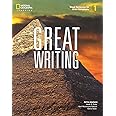
Similar items that may ship from close to you

Editorial Reviews
About the author, product details.
- Publisher : National Geographic/(ELT); 5th edition (March 14, 2019)
- Language : English
- ISBN-10 : 0357021053
- ISBN-13 : 978-0357021057
- Item Weight : 1.4 pounds
- Dimensions : 8.5 x 0.5 x 10.75 inches
- #646 in Reading Skills Reference (Books)
- #659 in Study & Teaching Reference (Books)
- #1,797 in English as a Second Language Instruction
About the author
Keith s. folse.
I've always been interested in language and languages. I was born in New Orleans, Louisiana, and grew up on the Mississippi Gulf Coast, which is really a linguistic extension of New Orleans. (We speak a similar dialect of English and eat the same food; I grew up on gumbo, red beans and rice, and jambalaya.) As a kid, I knew that we talked different. Beaucoup (boocoo), the neutral ground (the median in a road), and passing by someone's house (meaning: to stop and visit someone) were all a normal part of my dialect. I grew up primed to notice language nuances.
I love teaching, and I am thankful to the many dedicated teachers I've had over the years. I am especially grateful to my high school French teacher, Mrs. Emily de Montluzin, who was my first foreign language teacher many years ago. There was something inspiring about how she taught, which made what she taught so interesting and impactful on my life -- and isn't that what all of us teachers hope to accomplish?
Learning languages comes naturally to me and have studied six. Some were in a classroom setting with a teacher, a book, and other students. Other languages were learned by hanging out with native speakers and practicing a lot. A WHOLE LOT! More recently, I have started learning another language online. In the process of all this studying and learning, I have come to know a lot more about good teaching and good learning.
My first foreign language was French. I was naturally good at languages, which led me to continue studying them. I learned Spanish, eventually doing my master's thesis in dialects of Spanish in Nicaragua, Honduras, and El Salvador. My next language was Arabic. While living in Malaysia, I studied Malay, often by watching subtitles of the TV show "Dynasty" because it was one of only two shows on TV in English with Malay subtitles. (The other was "Sesame Street.") I studied Japanese and had to use it in my daily life there. Most recently, I have been learning German through my university course, which is 100% online due to COVID. This course has no Zoom and therefore no human interaction of any kind. I've come to realize and appreciate how hard it is to learn a language by yourself. Language is perhaps one of the most human interactions we have, yet I completed German 1 with a computer, an online textbook, and youtube videos.
For more than 40 years -- a number I cannot truly believe -- in the US and abroad. I've taught English as Second/Foreign Language in the US, Saudi Arabia, Malaysia, Kuwait, and Japan. I've also taught French and Spanish. In fact, I once taught Spanish in Japan IN JAPANESE. Now think about that combination for a moment!
In addition, I've conducted teacher training workshops all over the globe, from Argentina to Uzbekistan. I'm certified secondary (English & French), and one of my favorite events is working with hundreds of K12 teachers every summer in Arkansas through an amazing program with the Arkansas Department of State. I am a frequent conference presenter at international and regional TESOL events.
At a very early age, I loved teacher worksheets. Teachers back then passed out mimeographed handouts that they had run off on a spirit master machine. The handouts were a bluish-purple color, and they smelled GREAT! Teachers often arrived in class with last-minute handouts where the paper was still wet and the chemical smells were very strong. When a teacher passed out a worksheet, everyone was smelling the sheets.... but while my classmates continued with their handout-induced highs, I -- being a nerd -- was noticing the design of the worksheet. How did the teacher set up the matching activity? Terms on the left and definitions on the right? (Very American, I know now.) Or vice-versa? And where did the blanks go? And which words did she ask? It is no exaggeration to say that I really LOVED school. I LOVED those worksheets. I LOVED our workbooks. And so it's no wonder that at the age of 25, I published my first book. So far, I have published 75 books with the University of Michigan Press, National Geographic Learning, Wayzgoose Press, Oxford University Press, and Longman.
I have a BA in English with a minor in Secondary Education and French and an MA in TESOL. I also have a PhD in Second Language Acquisition and Instructional Technology. My main research areas are vocabulary and best teaching practices. I'm especially interested in experimental, quasi-experimental, and case study research on the teaching of grammar, the teaching of vocabulary, and error correction in second language writing.
Who knew that smelling the chemicals on worksheets in the 60s and 70s would lead me to be a textbook and workbook writer today? Well, they say that everything happens for a reason...
I hope you enjoy my English language materials. I am always open to hearing your suggestions for improving my work. Please feel free to contact me -- whether it is to comment on one of my books, ask about a research question, or invite me to participate at a conference in your area.
Customer reviews
Customer Reviews, including Product Star Ratings help customers to learn more about the product and decide whether it is the right product for them.
To calculate the overall star rating and percentage breakdown by star, we don’t use a simple average. Instead, our system considers things like how recent a review is and if the reviewer bought the item on Amazon. It also analyzed reviews to verify trustworthiness.
- Sort reviews by Top reviews Most recent Top reviews
Top reviews from the United States
There was a problem filtering reviews right now. please try again later..
- Amazon Newsletter
- About Amazon
- Accessibility
- Sustainability
- Press Center
- Investor Relations
- Amazon Devices
- Amazon Science
- Start Selling with Amazon
- Sell apps on Amazon
- Supply to Amazon
- Protect & Build Your Brand
- Become an Affiliate
- Become a Delivery Driver
- Start a Package Delivery Business
- Advertise Your Products
- Self-Publish with Us
- Host an Amazon Hub
- › See More Ways to Make Money
- Amazon Visa
- Amazon Store Card
- Amazon Secured Card
- Amazon Business Card
- Shop with Points
- Credit Card Marketplace
- Reload Your Balance
- Amazon Currency Converter
- Your Account
- Your Orders
- Shipping Rates & Policies
- Amazon Prime
- Returns & Replacements
- Manage Your Content and Devices
- Recalls and Product Safety Alerts
- Conditions of Use
- Privacy Notice
- Consumer Health Data Privacy Disclosure
- Your Ads Privacy Choices

IMAGES
VIDEO
COMMENTS
Misc. Fear and Loathing in Las Vegas by Hunter S. Thompson. The Last American Hero Is Junior Johnson. Yes! by Tom Wolfe. Masters of the Universe Go to Camp by Philip Weiss. What Is Glitter? by Caity Weaver. The best short articles, nonfiction and essays from around the net - interesting articles and essays on every subject, all free to read online.
But reading nonfiction essays online is a quick way to learn which authors you like. Also, reading nonfiction essays can help you learn more about different topics and experiences. Besides essays on Book Riot, I love looking for essays on The New Yorker, The Atlantic, The Rumpus, and Electric Literature. But there are great nonfiction essays ...
1. David Sedaris - Laugh, Kookaburra. A great family drama takes place against the backdrop of the Australian wilderness. And the Kookaburra laughs…. This is one of the top essays of the lot. It's a great mixture of family reminiscences, travel writing, and advice on what's most important in life.
Technique #1: humor. Notice Renner's gentle and relaxed humor that lightly mocks their younger self's grand ambitions (this is different from the more sarcastic kind of humor used by Stephen in the first essay—you could never mistake one writer for the other). My first dream job was to be a pickle truck driver.
Robin Wall Kimmerer, Braiding Sweetgrass (2013) Of every essay in my relentlessly earmarked copy of Braiding Sweetgrass, Dr. Robin Wall Kimmerer's gorgeously rendered argument for why and how we should keep going, there's one that especially hits home: her account of professor-turned-forester Franz Dolp.When Dolp, several decades ago, revisited the farm that he had once shared with his ex ...
Check out Episode 2: The Essay, in which a student gets feedback in real time on their essay from a former Princeton director of admissions and a panel of experts talk about essay dos and don'ts. The episode is 26 minutes long. The College Essay Trap: Rescue Your College Application Essay From the "Maybe" Pile.
Didion's pen is like a periscope onto the creative mind—and, as this collection demonstrates, it always has been. These essays offer a direct line to what's in the offing.". -Durga Chew-Bose ( The New York Times Book Review) 3. Orwell's Roses by Rebecca Solnit.
Come up with a thesis. Create an essay outline. Write the introduction. Write the main body, organized into paragraphs. Write the conclusion. Evaluate the overall organization. Revise the content of each paragraph. Proofread your essay or use a Grammar Checker for language errors. Use a plagiarism checker.
Making an all-state team → outstanding achievement. Making an all-state team → counting the cost of saying "no" to other interests. Making a friend out of an enemy → finding common ground, forgiveness. Making a friend out of an enemy → confront toxic thinking and behavior in yourself.
A Report from Occupied Territory by James Baldwin. I know, in my own flesh, and know, which is worse, in the scars borne by many of those dearest to me, the thunder and fire of the billy club, the paralyzing shock of spittle in the face.
Insomniac City: New York, Oliver, and Me by Bill Hayes. "Bill Hayes came to New York City in 2009 with a one-way ticket and only the vaguest idea of how he would get by. But, at forty-eight years old, having spent decades in San Francisco, he craved change.
They are organized by rank, that is, with the essays on the most lists at the top. To see the same list organized chronologically, go HERE. Note 1: Some of the essays are actually chapters from books. In such cases, I have identified the source book. Note 2: Some of the essays are book-length, such as Virginia Woolf's A Room of One's Own.
Great Essays Online is best place for the students who is seeking for essay writing help. At greatessaysonline we provide wide range of essays on important current topics which is very helpful for student in their descriptive essay writing exam. Great Essays Online endivours to provide essay examples such as long essays, 1000 words essay, 500 words essay, 250 word essay, 100 word essay, short ...
24. Writing.com. This is an absolutely all-inclusive community for writers. It's open to all levels and provides a creative, supportive environment for all members, as well as portfolios to store and display their writing. Like most writing websites, it also includes a plethora of writing tools, contests, and rewards.
Harrison Scott Key, "My Dad Tried to Kill Me with an Alligator". This personal essay is a tongue-in-cheek story about the author's run-in with an alligator on the Pearl River in Mississippi. Looking back on the event as an adult, Key considers his father's tendencies in light of his own, now that he himself is a dad.
Discover the keys to unlocking your potential in essay writing with an award-winning author. Press Alt+1 for screen-reader mode, Alt+0 to cancel Accessibility Screen-Reader Guide, ... or be bluntly honest with yourself, and learn why this honesty is the heart of a great piece. 4 The Skeptical Essayist: Conflicting Views.
Now in the fifth edition, Great Writing is a six-level series that helps students develop their academic writing with expanded vocabulary building, sentence development, and National Geographic content to spark ideas. Great Writing provides clear explanations, academic writing models, and focused practice to help students write great sentences, paragraphs, and essays.
Sample College Essay 2 with Feedback. This content is licensed by Khan Academy and is available for free at www.khanacademy.org. College essays are an important part of your college application and give you the chance to show colleges and universities your personality. This guide will give you tips on how to write an effective college essay.
Whether we're proofreading and editing, checking for plagiarism or AI content, generating citations, or writing useful Knowledge Base articles, our aim is to support students on their journey to become better academic writers. We believe that every student should have the right tools for academic success.
ISBN 9780357021057 Great Writing 1, 5th Edition: Great Sentences for Great Paragraphs. Student book + Online Workbook access code. The new edition of the Great Writing series provides clear explanations, extensive models of academic writing and practice to help learners write great sentences, paragraphs, and essays.